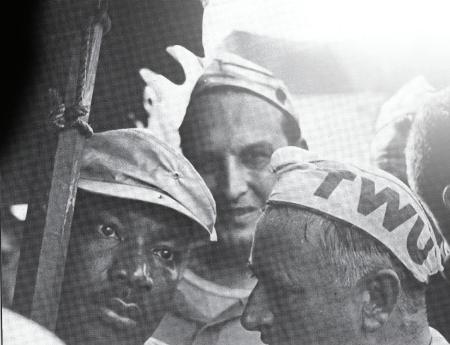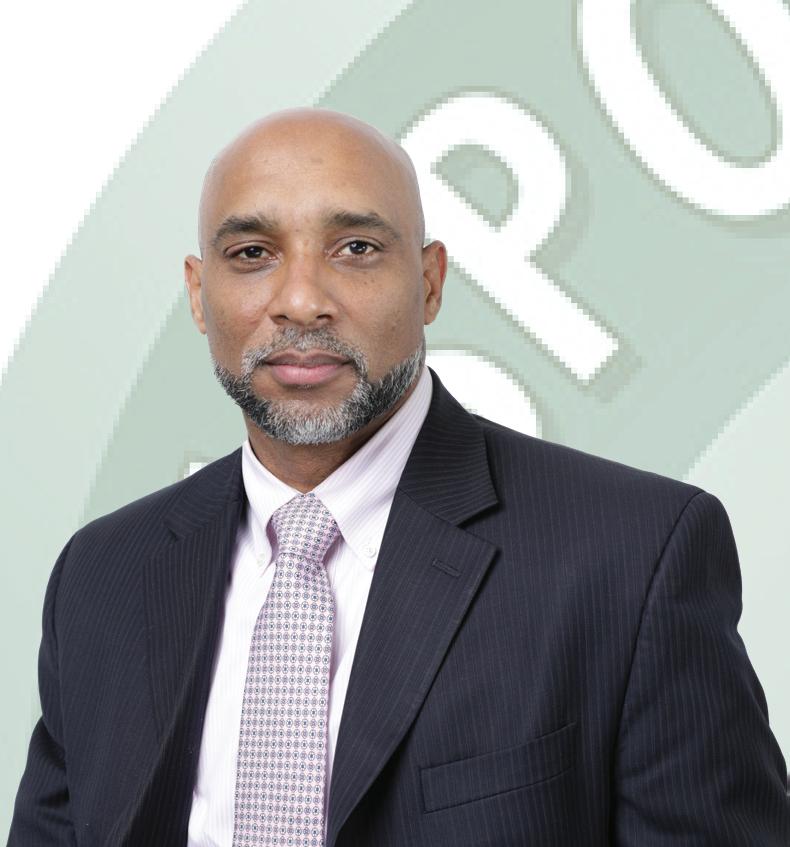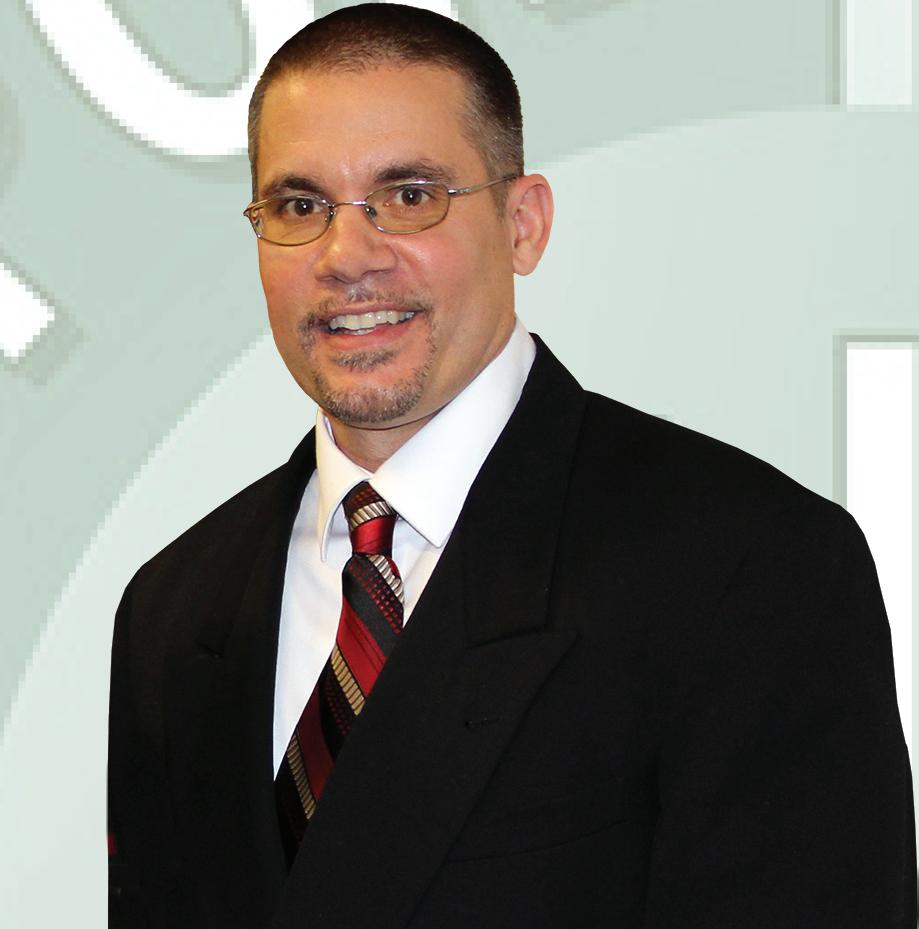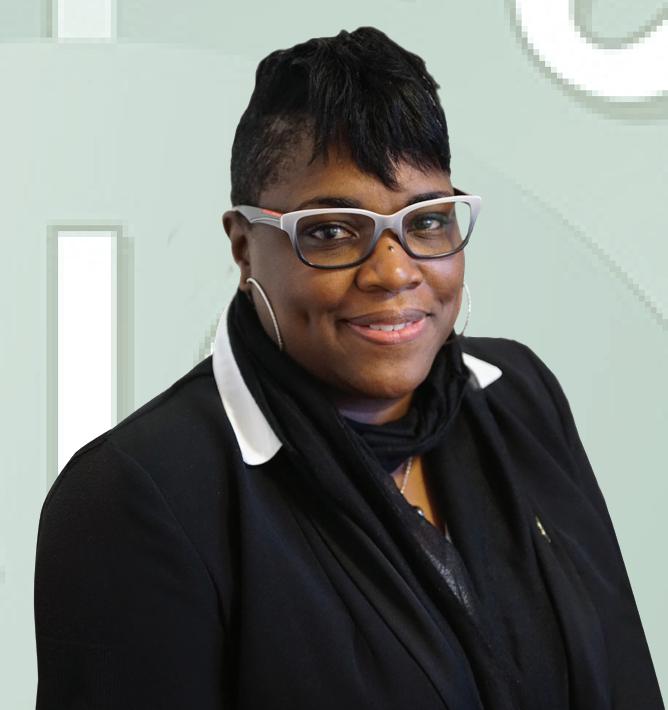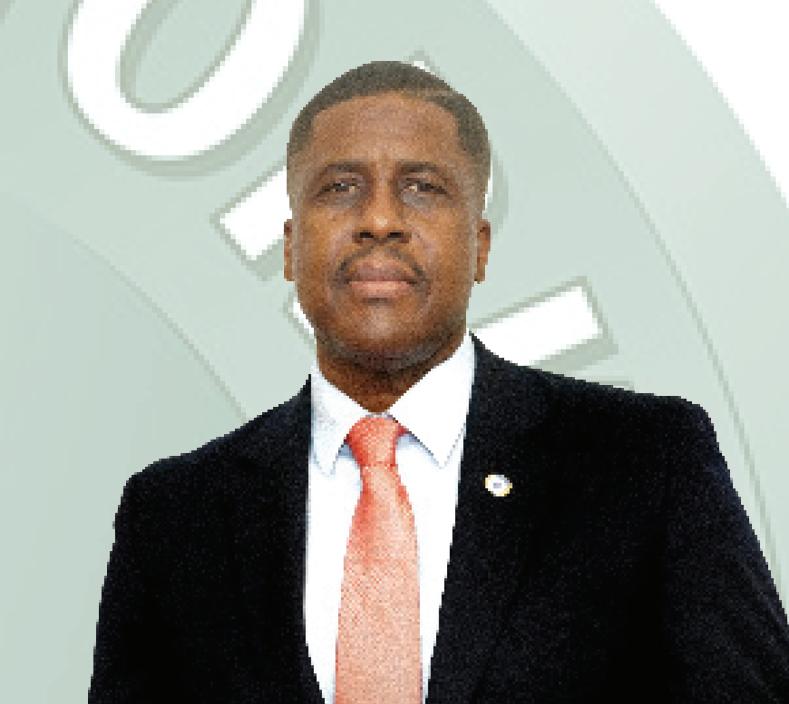




























Gray Television and our employees honor the life and legacy of Dr. Martin Luther King, Jr.
May his wisdom, words and dreams continue to shape our hearts and minds for years to come.

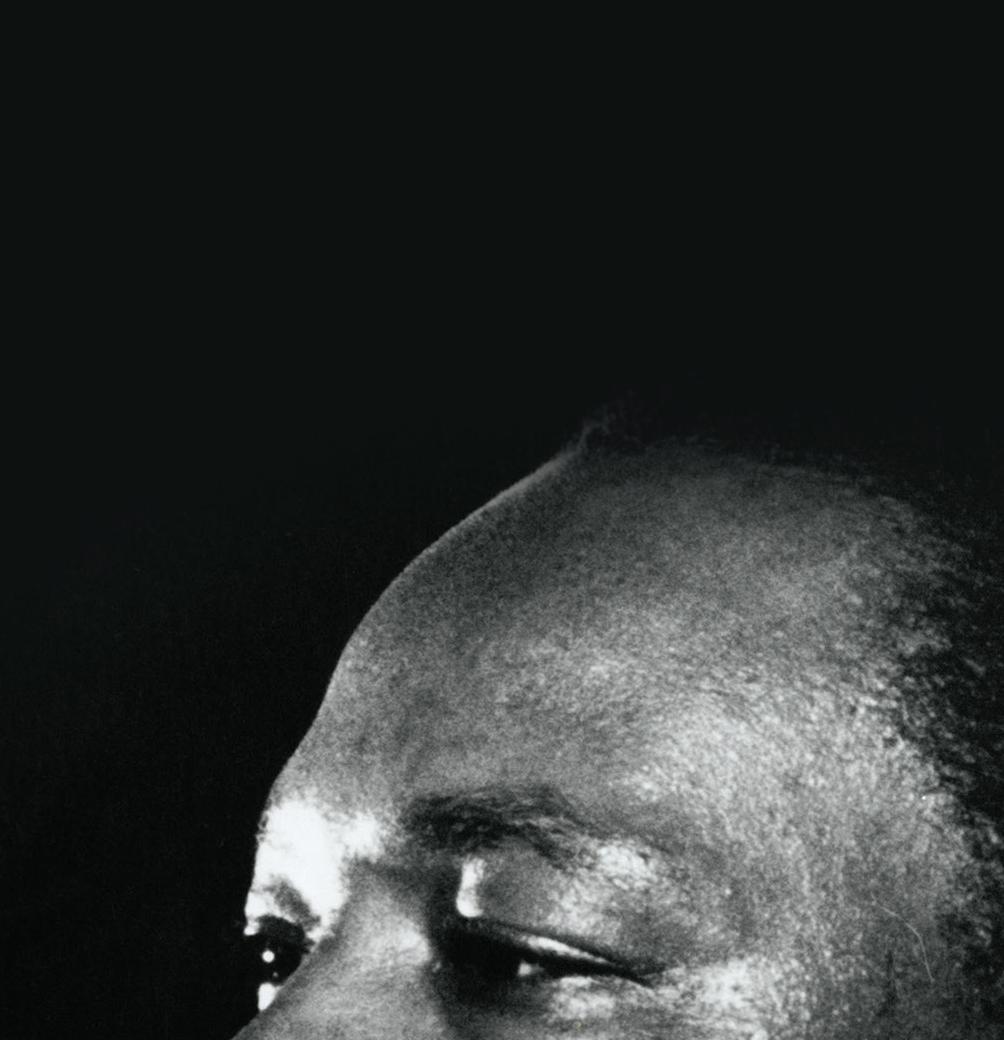
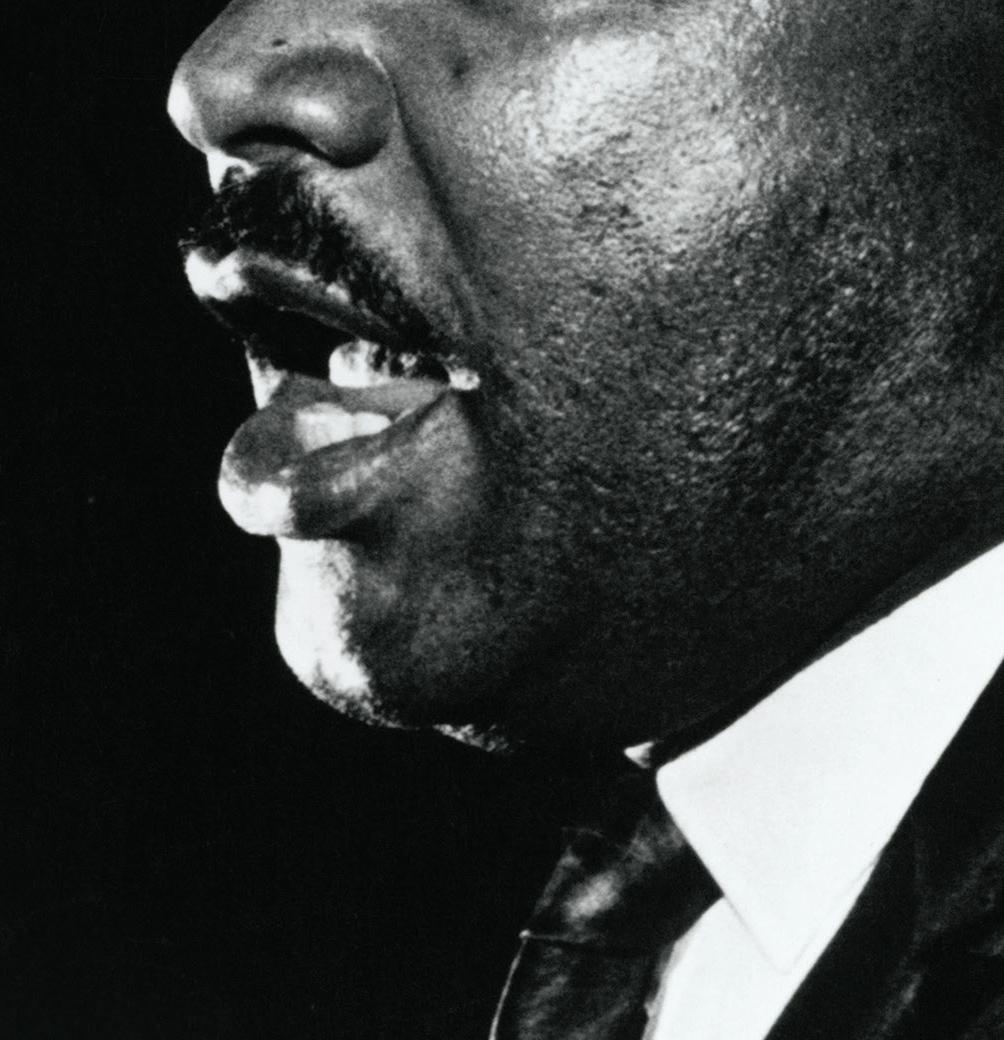


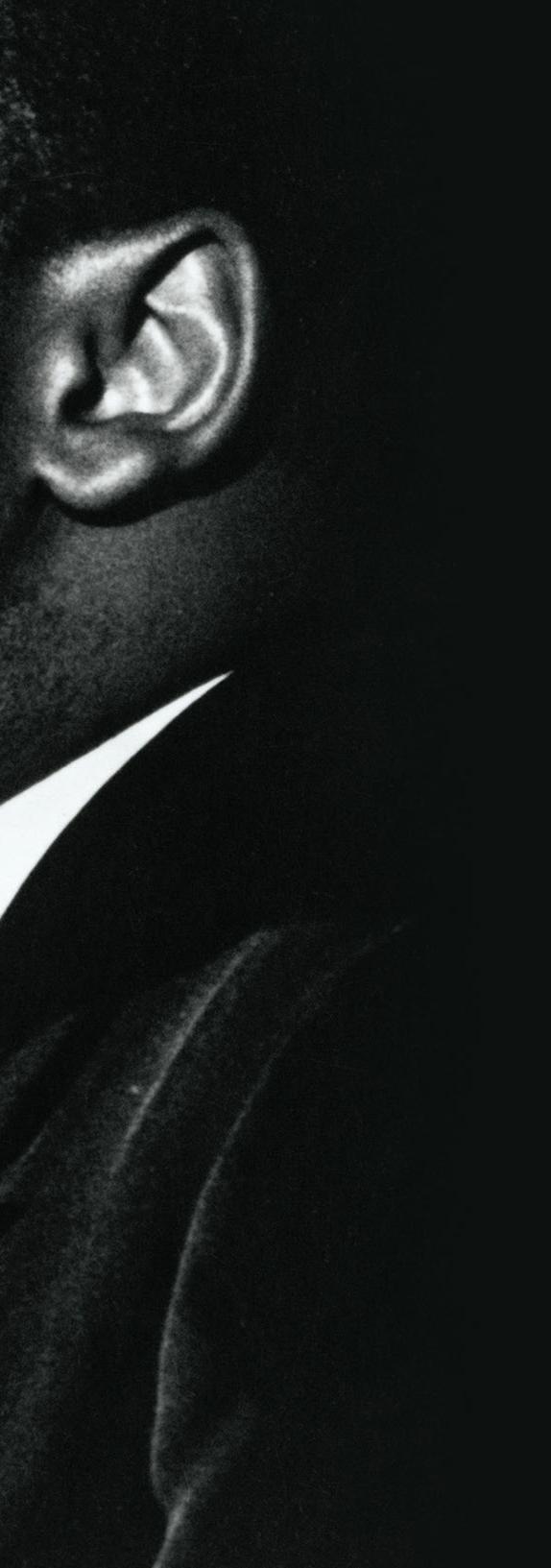



Pauline Plummer
Ellison

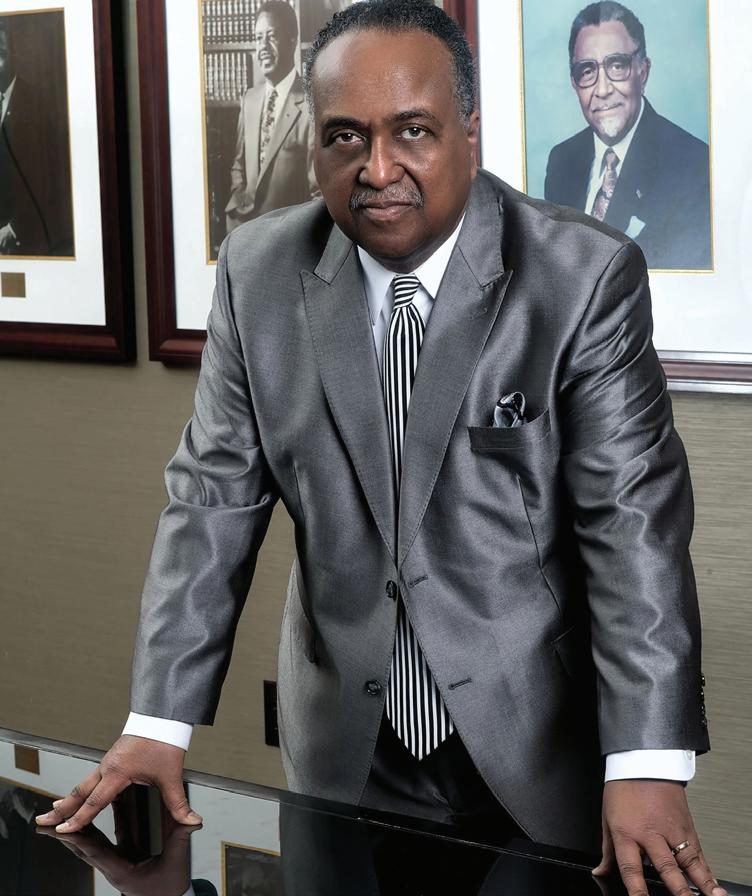
Dr. Charles Steele, Jr. President & CEO
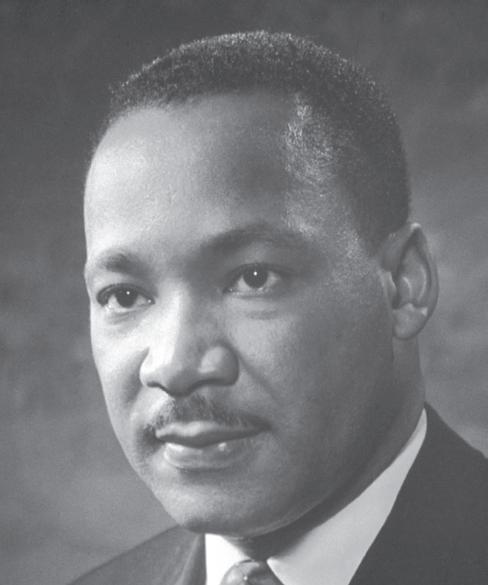
Martin Luther King Jr. Founding President
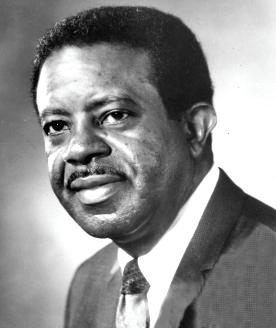
Ralph D. Abernathy President 1968 - 1977
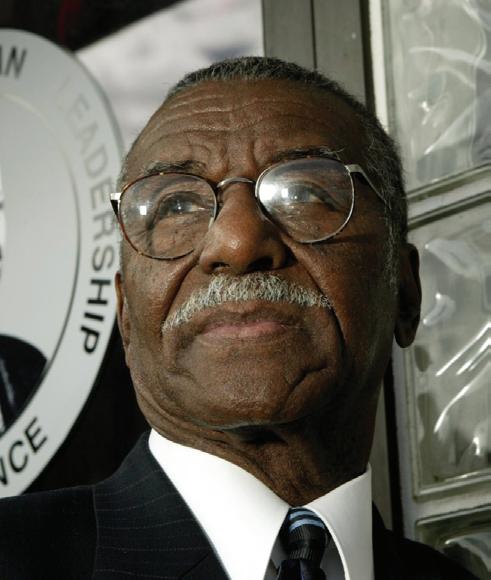
Fred L. Shuttlesworth President 2004

Dr. Bernard LaFayette, Jr Chairman
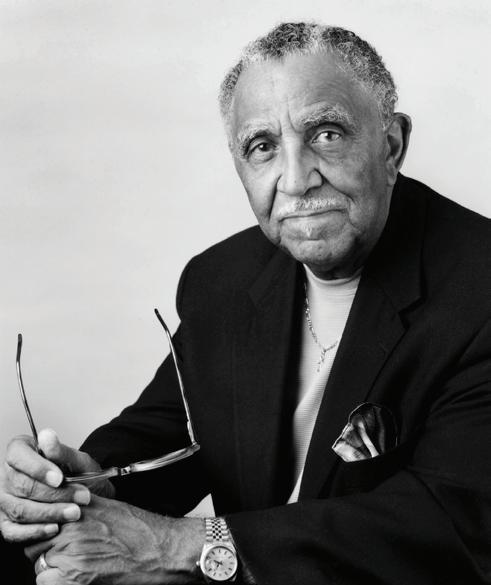
Joseph E. Lowery President 1977 - 1997
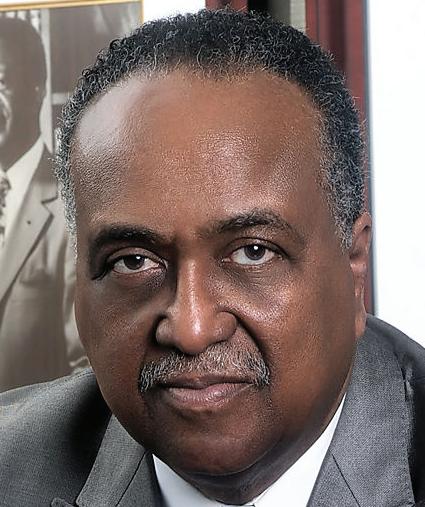
Dr. Charles Steele, Jr. President & CEO

Martin Luther King III President 1998 - 2003
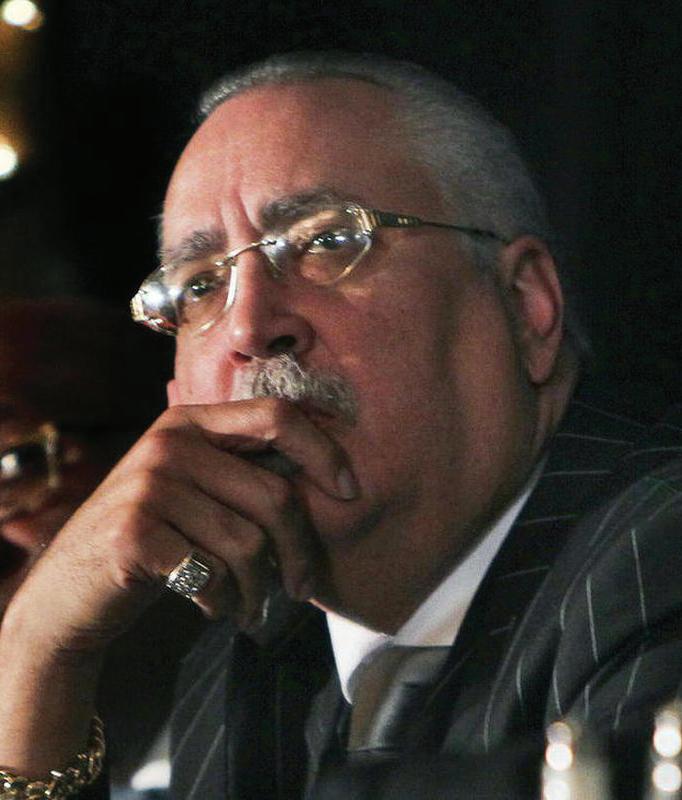
Howard Creecy Jr. President 2011
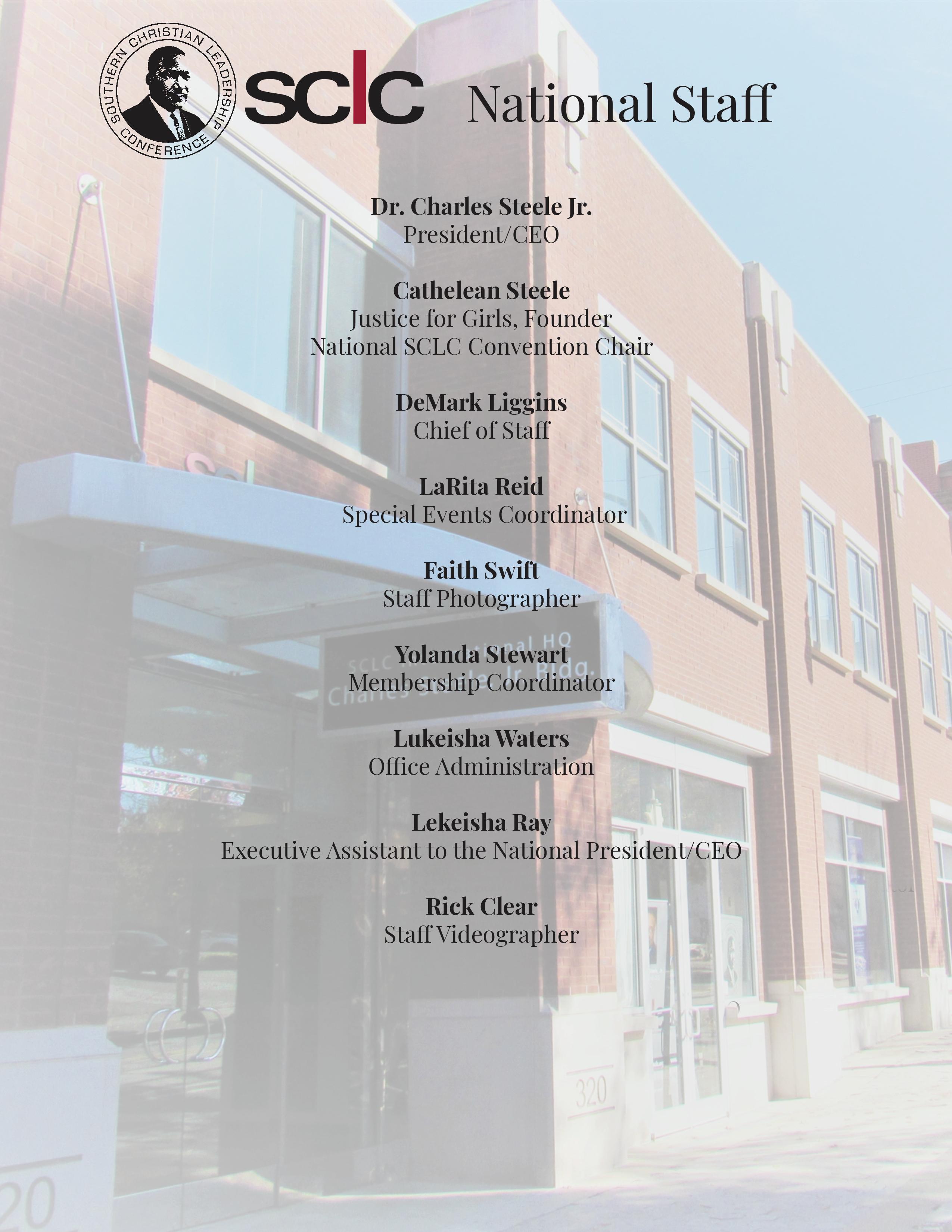

By: Dr. Charles Steele Jr., SCLC National President & CEO
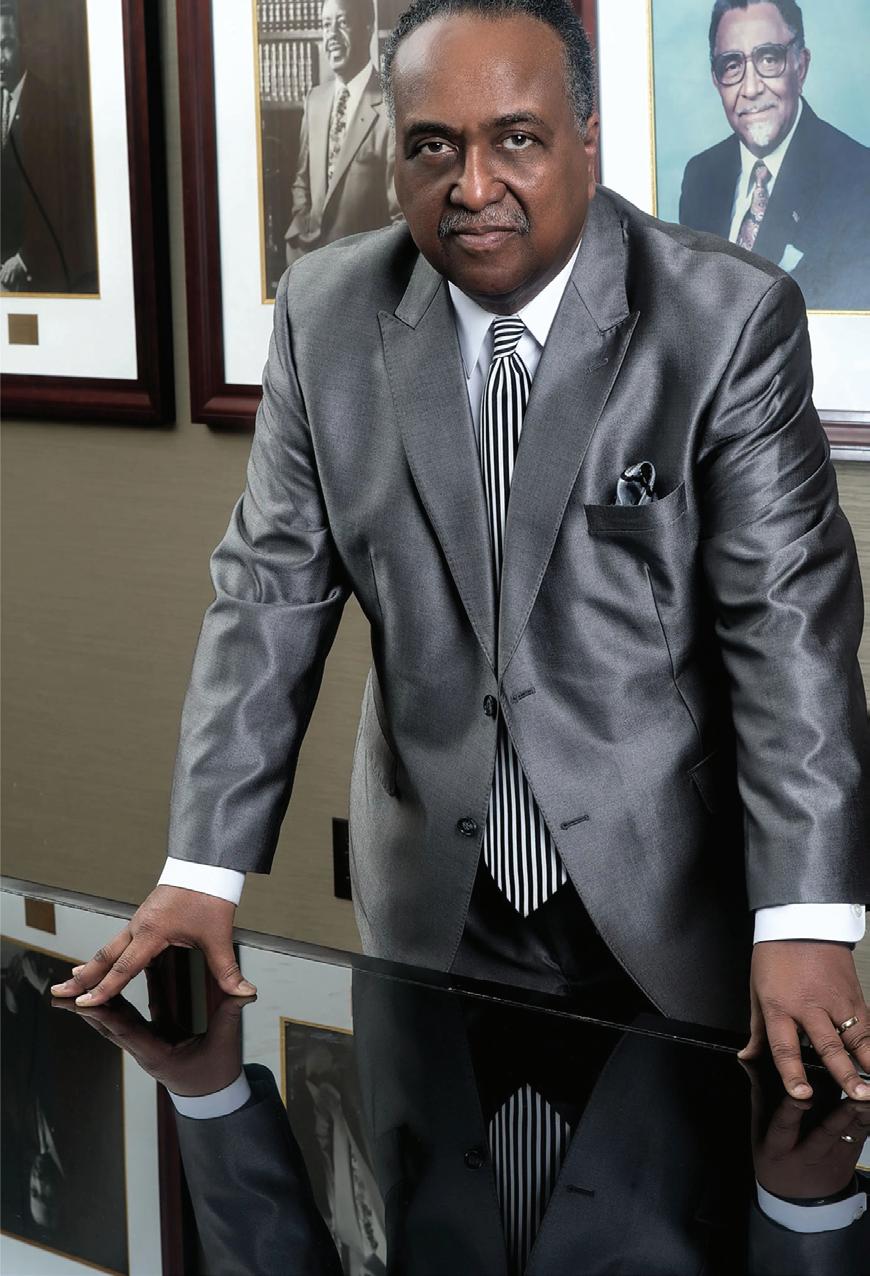
I was born on August 3, 1946, in Tuscaloosa, Alabama. I grew up in a place they called “Daily Bottom”. Can you imagine, the place you live is called Daily Bottom? Yes, it was a constant reminder of the struggles of our community, the lack of hope and the despair that filled the air. I grew up during a period of intense racial segregation and discrimination in the southern United States, these experiences greatly influenced my work in civil rights. All thanks to the Lord, my parents were eventually able to get us out of Daily Bottom. However, I soon realized that there was a Daily bottom in every city, state and country around the world. The understanding of the struggle of everyday life for African-Americans at that time started a fire in me and a passion for civil rights.
After college, I began my career in business, coowning and operating a funeral home and several other enterprises. However, my passion for civil rights and community activism kept burning as I watched some of the unfair practices in my community. This particular need to affect change eventually led me into politics and advocacy. I was elected to the Tuscaloosa City Council in 1985, becoming one of the first African-American elected to the council since Reconstruction. I served for two terms (8 years), focusing on issues such as housing, economic development, and civil rights. In 1994, I was elected to the Alabama State Senate where I served 10 years. During my term we were able to accomplish many things that I am very grateful for. However, I always knew God had more for me to do. In 2004, I was unanimously elected as President and CEO of the Southern Christian Leadership Conference (SCLC). I quickly realized that this was and is a global fight for justice and SCLC needs to be a global organization. Therefore, my mission and goals quickly turned international.
I can remember in the early 1990’s God showed me a vision that I would travel the world. I can see so vividly that night, I awoke very calming telling my wife that I was blinded by a bright light and I could only see a vision of the world. I knew immediately that God was telling me I would travel internationally. I am honored to say that God’s word never fails and I have traveled all around the world speaking on civil rights and injustices from places like Brazil, Berlin, Haiti, Hawaii, South Africa, West Africa, Asia, Israel and more. I have met with the likes of presidents, ambassadors, celebrities, athletes and everyday people from all walks of life. I have seen and heard all types of injustices from all around the world. In my life, traveling has been one of the most enlightening aspects of understanding that cannot be taught.
Traveling the world is often seen as a luxury or a break from the routine of daily life, but its importance extends far beyond my personal pleasure of exploring new destinations. The experience I attained from observing diverse ways of life, and engaging with people from various backgrounds has profoundly impacted my understanding of global civil rights. In an increasingly interconnected world, travel has not only broadened my individual horizon, but also played a crucial role in promoting empathy, teaching tolerance, and discovering and uncovering worldwide social injustices.
One of the most significant benefits of traveling is the opportunity it provides to expand your perspective as well as give perspective. Its an opportunity to learn and also teach. By witnessing firsthand, the diverse ways people live and work I have gained a deeper appreciation for the complexity and richness of human society. This broadened perspective fosters empathy and reduces ignorance, two key components in the fight for civil rights. I have traveled to countless historical sites and museums dedicated to civil rights movements offering invaluable lessons. Places like the Senegalese Island “The door of no return”, and the Civil Rights Museum in Memphis, Tennessee, firsthand insights into the struggles and triumphs of those who have fought for equality and justice. These experiences bring history to life, making it more tangible and personal. I have been personally touched and affected by each visit. I have brought back a fire and desire to help all God’s children who fight against the unfair injustices of society.
Empathy is at the heart of civil rights advocacy. When I travel and experience different cultures, I am able to empathize with others’ struggles and challenges. Meeting individuals from diverse backgrounds and hearing their stories creates a sense of solidarity and a commitment to supporting civil rights for all. This empathy can transform into advocacy for change, motivated by a personal connection to global issues. My wife and I have personally hosted students from Libreville, Gabon and Rwanda giving them an opportunity to visual the impact they can have on American society.
Exposure to civil rights issues abroad has inspired me to take action each time I return home. Whether it’s advocating for policy changes or simply raising awareness about global issues. I always feel compelled to make a difference. The passion and motivation gained from firsthand experiences translates into meaningful contributions to the fight for civil rights. Traveling the world has allowed me to work with President Mikail Gorbachev on world
SCLC National Magazine/ Convention 2024 Issue
peace and nonviolence, President JeanBetrand Aristide of Haiti on establishing an SCLC division in Haiti, Prime Minister Ariel Sharon in Israel on training in Kingian Theory, President Joachim Gauck in the Republic of Germany on the Kingian philosophy training and many more. Our training in many of these countries has impacted the thinking and passing of laws on inequality and justice in the country.
The importance of my traveling the world extends far beyond the individual benefits of exploration and adventure. By expanding perspectives, building empathy, challenging prejudices, and inspiring action, my 50 years of travel has played a crucial role in promoting civil and human rights. I encourage each one of you to become a global citizen, it is our responsibility to understand and advocate for the rights of all individuals, regardless of their background or ethnicity. Through travel, we can become more informed, compassionate, and effective advocates for a more just and equitable world.


During my tenure, we worked to revitalize the organization, addressing contemporary civil rights issues such as police brutality, voting rights, and economic inequality. We were instrumental in launching several initiatives aimed at combating social injustices. Our work and dedication to the movement allowed us to expand SCLC’s reach and influence, addressing issues not only in the United States but also globally.
For the next generation of inspiring civil rights leaders, I encourage you as a people in the African-American community to understand the importance of traveling internationally and building relationships. We must understand that after getting our formal education that we must continue reading, traveling and building relationships. It’s the global community that we must be responsible for in bringing about the Kingian Philosophy teaching and training on non-violence.
My prayer is that my legacy will tell the story of my passion to help others and that passion will spread and lead to the creation of a better world for all God’s children. It is my deep and sincere hope that my efforts in contributing to civil rights have been significant. I’m prayerful that my leadership will continue to help sustain the legacy of the SCLC, ensuring that the fight for justice and equality continues.
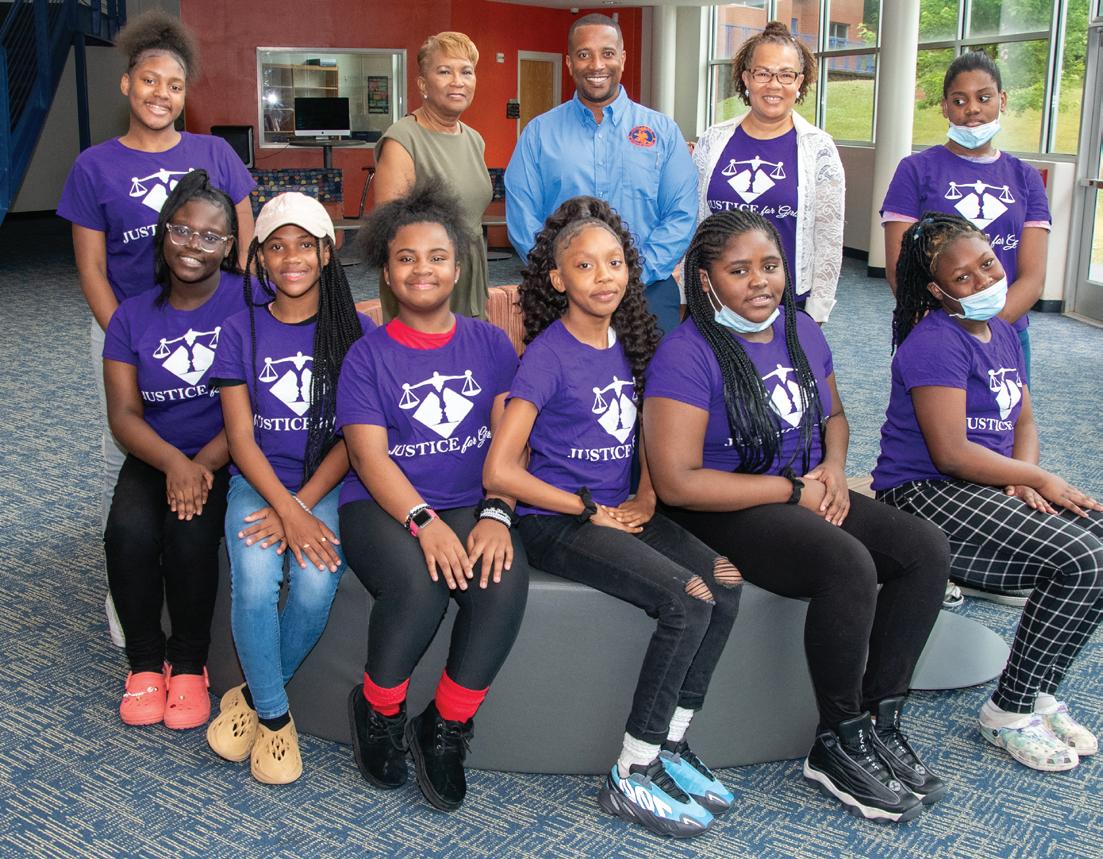
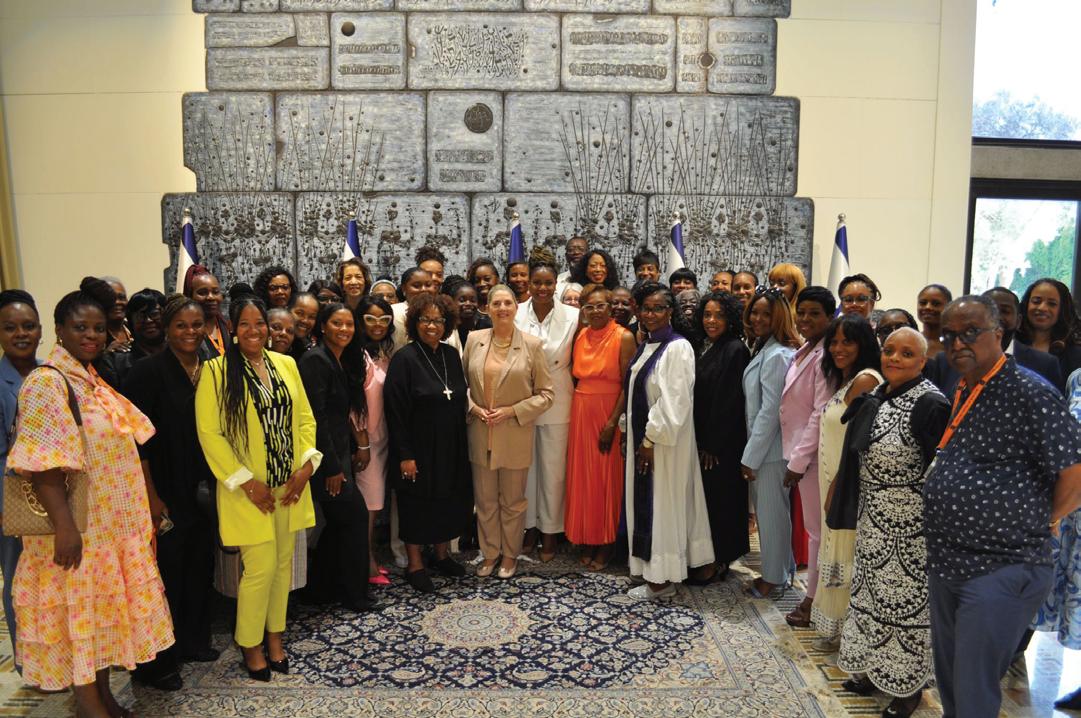
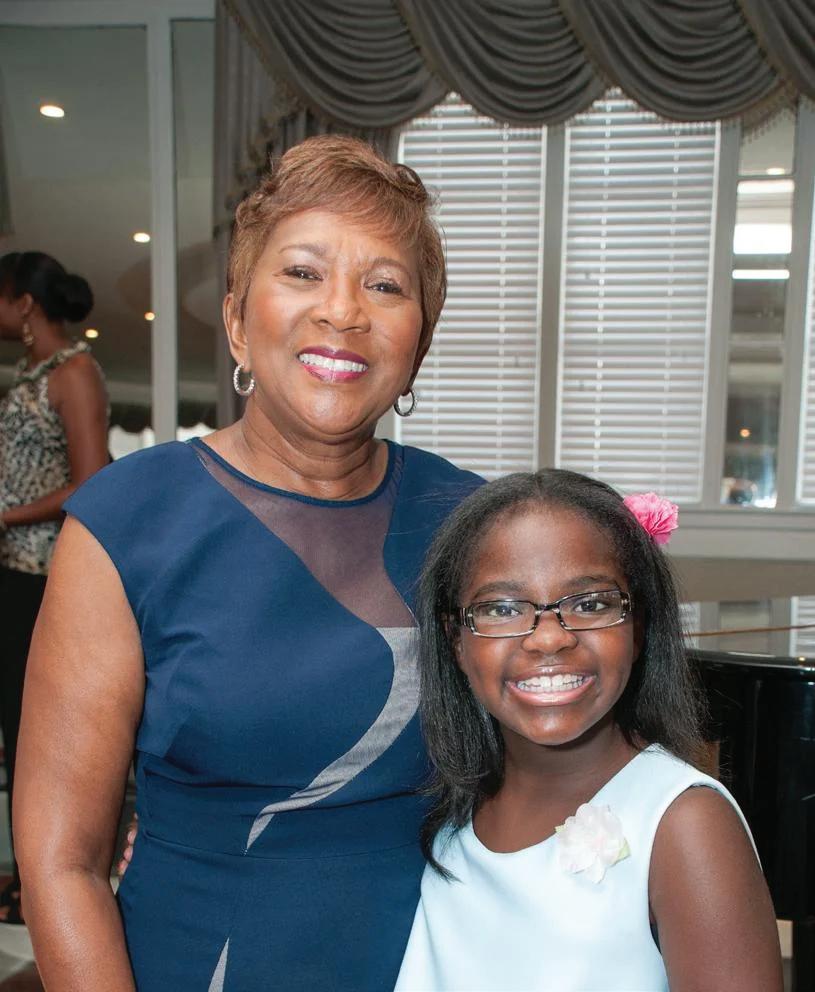
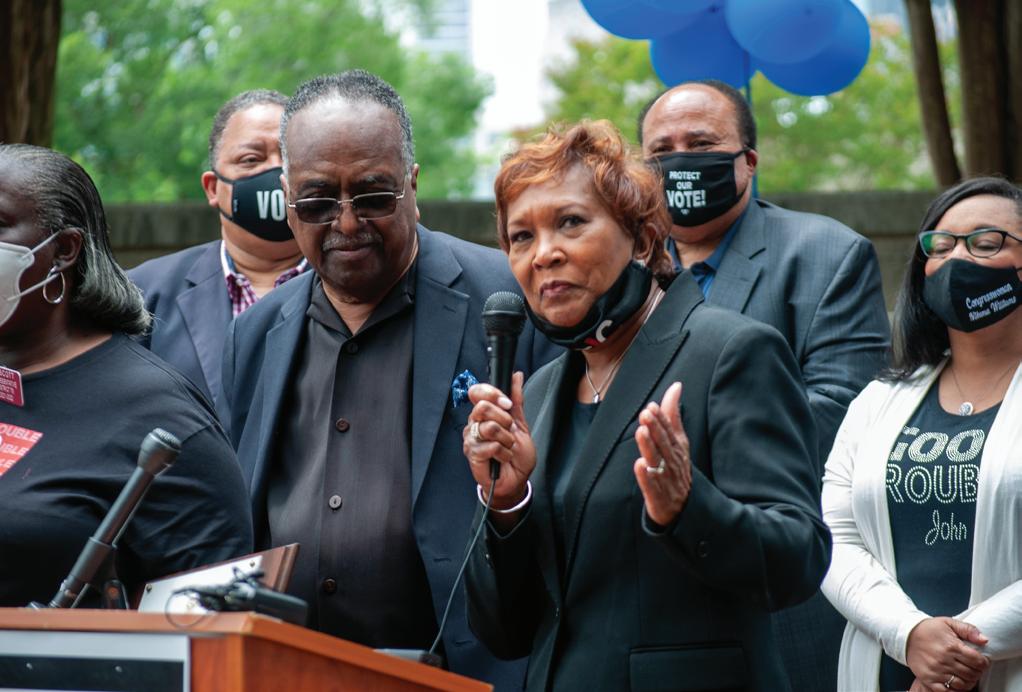
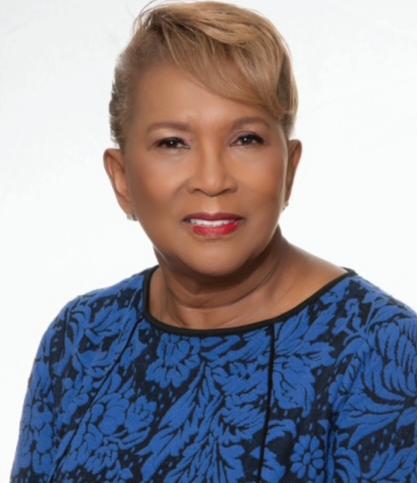
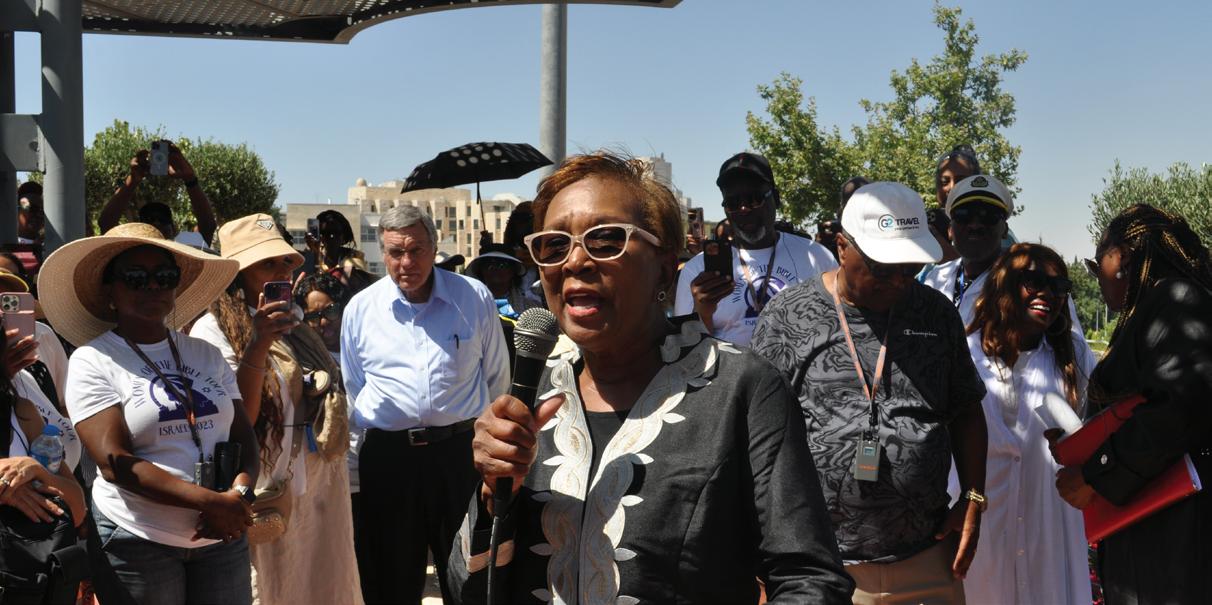
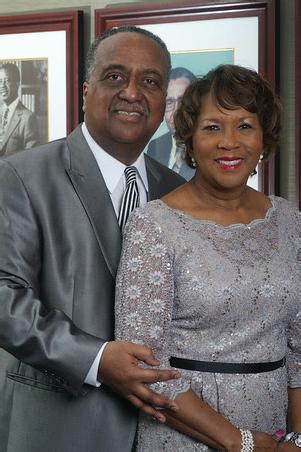
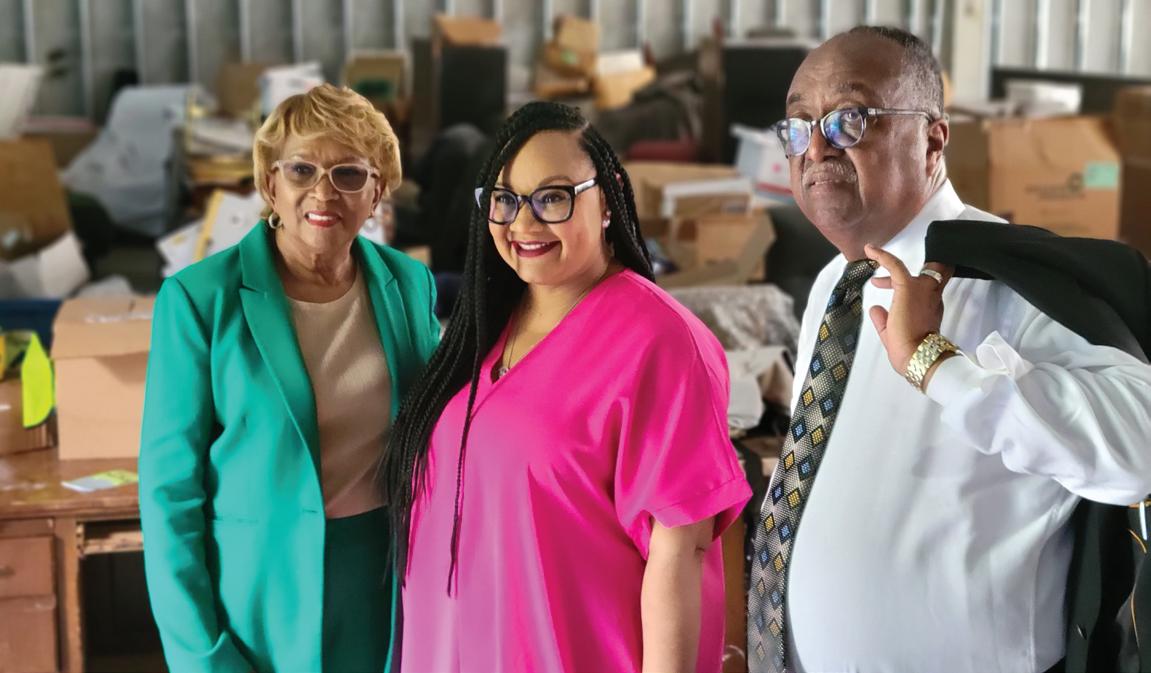
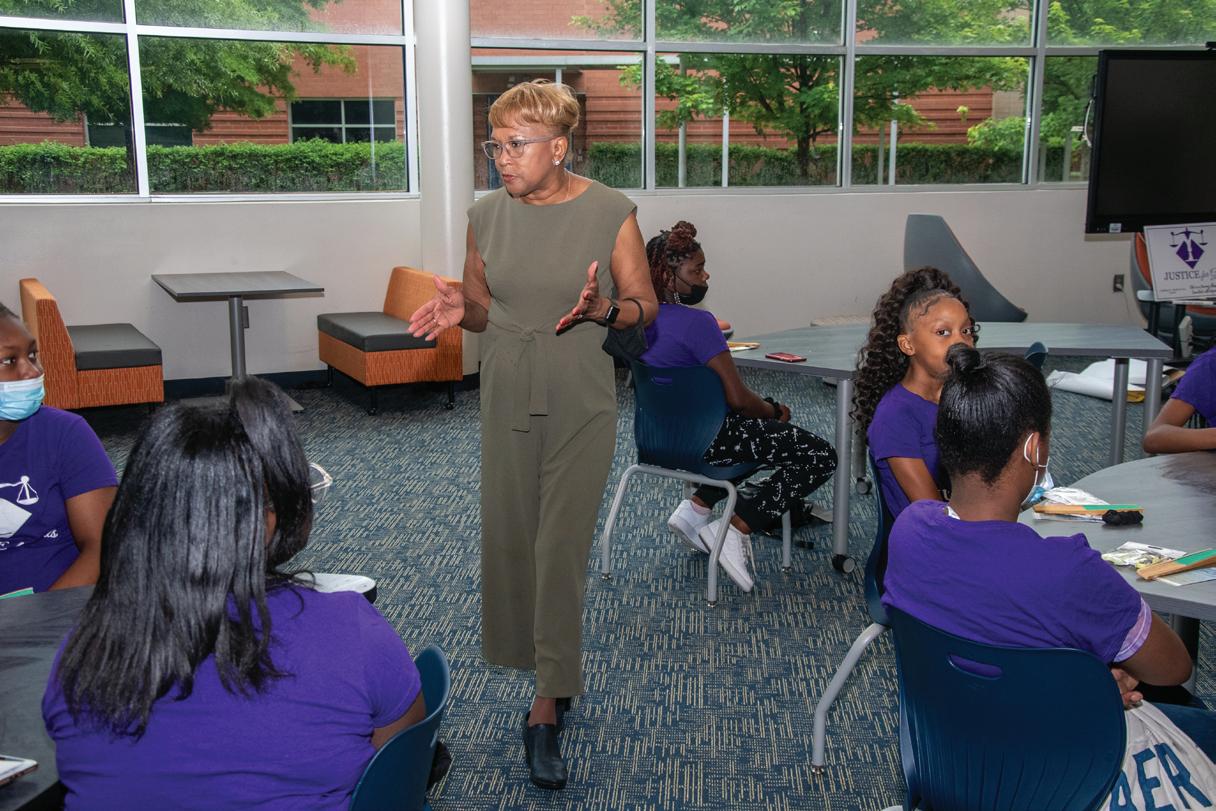
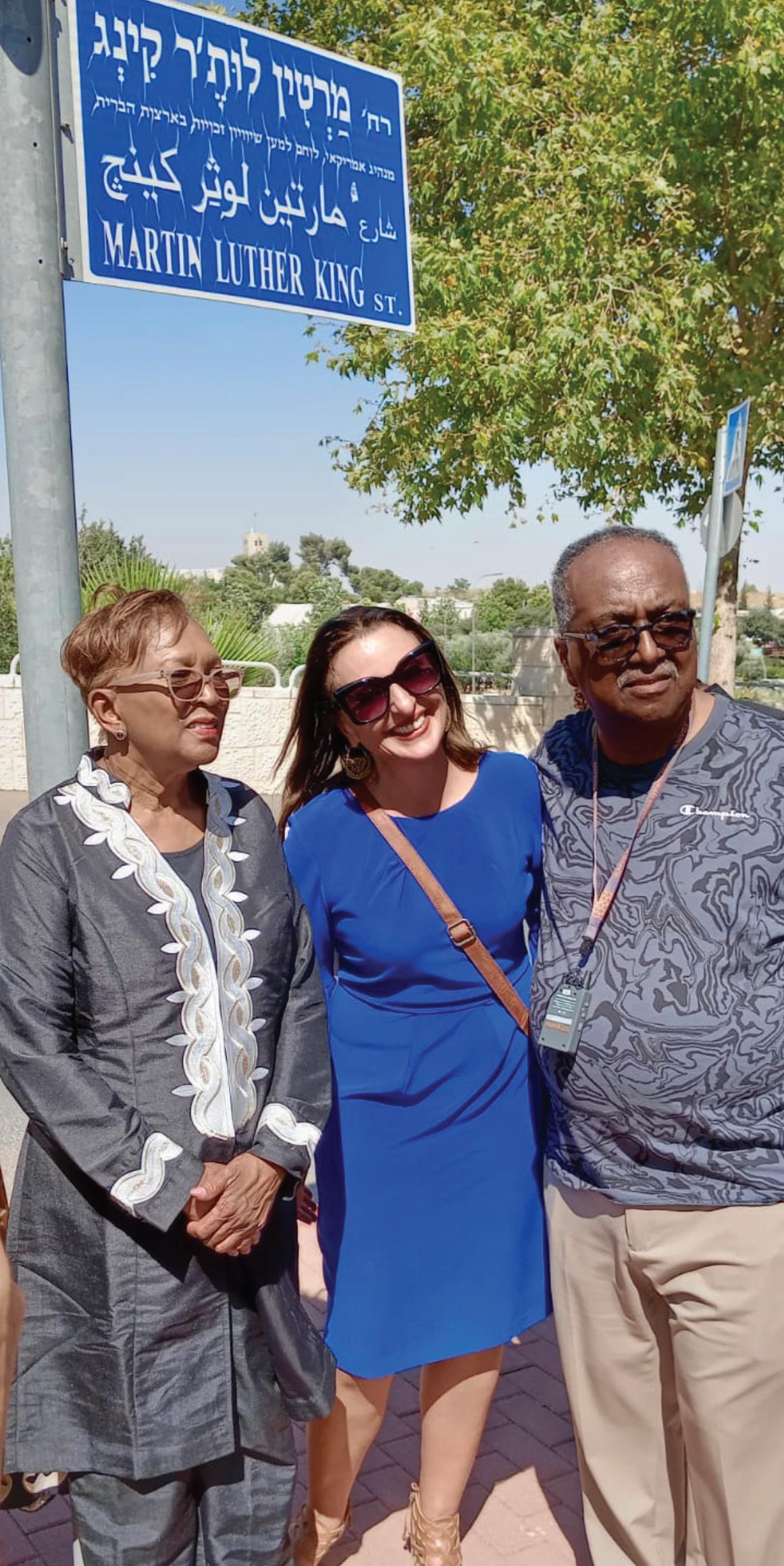


By: Mrs. Cathelean Steele, Founder, Justice for Girls
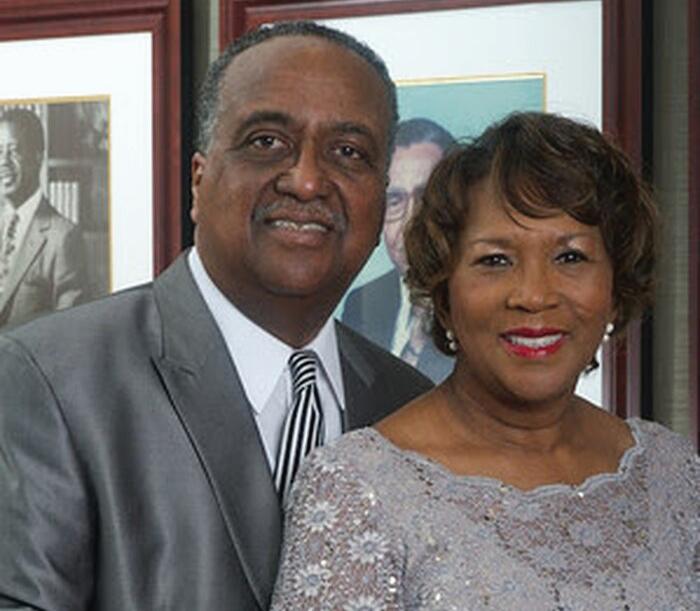
Several years ago, I learned about the epidemic referred to as sex trafficking from Lisa C. Williams the author of Beautiful Layers, a must read. I immediately began to research and was overwhelmed with the number of youth- females and males that are caught up in this web.
The U.S. Department of Homeland Security recently shared some of the common types of Human Trafficking.
1. Forced Labor – victims that are forced to work against their will.
2. Sex – Individuals are required to engage in sexual acts.
3. Forced Marriage – victims are forced to marry another person without consent.
4. Domestic Servitude – forced labor that occurs in a private household.
5. Child Soldiers – minors are used as fighters in acts of war.
Today, there are 49.6 million people in modern slavery worldwide, and twelve million are children. Fifty four percent of those trapped in modern slavery are women and girls. Sex trafficking is the most common type of trafficking in the United States. In 2024, there were 88 million child sexual materials filed reported to the National Center for missing and exploited children. It has been estimated that ninety percent of Runaways become a part of the sex trade industry. It is also estimated that a child that is told to leave the house by a parent and has nowhere to go and is placed in an environment where they have to provide for themselves, is likely to end up in the sex trafficking industry. The younger a girl when she leaves home the more likely it is that she will become sex trafficked.
I saw a need to educate our youth and parents by bringing awareness to this growing problem in our communities. I was surprised to learn that many adults believed that the victims were responsible for their situation. They referred to them as fast, asking for it and bad girls. I remembered the words of Norman Vincent Peale, “Change your thoughts
and you change your world”. Therefore, I began to focus on mental conditioning and realized our behavior in life is sometime based on false assumptions. Many girls involved in sex trafficking tend to blame themselves for actions beyond their control. They find themselves in a negative spiral which creates deeper depressions and increased anxieties.


Through teaching the girls I realized that the conversation inside their heads was negative thought about themselves. I then began to help them focus on themselves in a positive light. I shared with them a Native American parable with the grandfather that reads as follows: The grandson talking to his grandfather said, “I feel as if I have two wolves fighting in my heart. One wolf is the vengeful, violent one. The other wolf is the loving, compassionate one.” The grandfather asked him, “Which wolf will win the fight in your heart?” Answer- The one I feed. Therefore, I say to you recognize your gift and do not allow negative voices of others to lead you in a direction that brings harm into your life.
Remember this saying, “don’t let the devil ride, if you let him ride he’ll want to drive.”


LIKE REV. DR. MARTIN LUTHER KING, JR. AND THE SCLC, WE FIGHT FOR BETTER FUTURES FOR ALL PEOPLE.













All of the things I just found too hard to say.


LAUREN JAUREGUI // TRACK 03
WHEN YOUR KID CAN’T FIND THE LANGUAGE, FIND THE LYRICS. USE THEM TO START A CONVERSATION WITH YOUR KIDS ABOUT EMOTIONAL WELLBEING. LISTEN TO THE ALBUM, FIND TOOLS AND GET TIPS FROM PROFESSIONALS AT SOUNDITOUTTOGETHER.ORG




Written By: Dr. Bernard Lafayette, Chairman of the Board
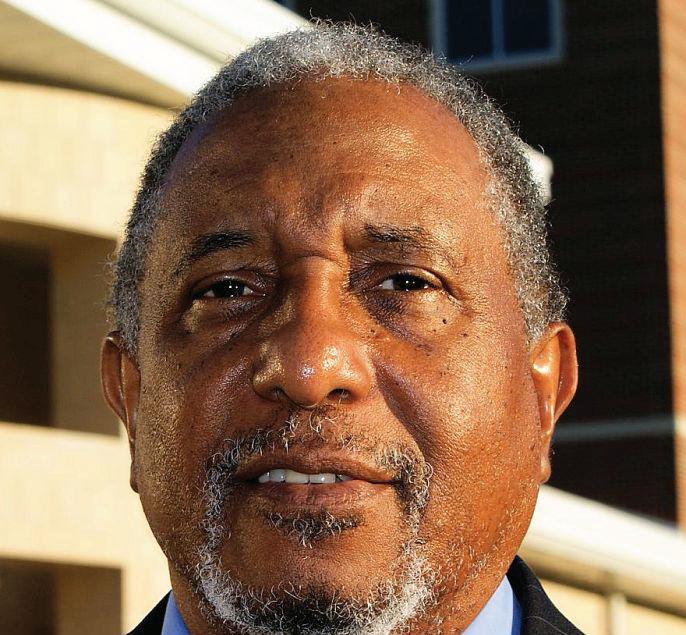
It’s an honor to recognize the tremendous impact that Dr. Charles Steele has had on SCLC over many years. I was initially a board of directors’ member when Dr. Steele served his first term. As Chairman of the board in 2012, years later, I asked him to come back as President/CEO. Although a daunting task at the time because SCLC was undergoing significant changes, he never wavered in his response. He poured his expertise and all his resources into our organization. Within a short period, he had renewed SCLC. His determination to uphold the legacy of Dr. Martin Luther King, Jr.‘s vision has made him a stalwart leader.
Over the last two decades, Dr. Steele and I have traveled to Berlin, Israel, Paris, and Cuba, sharing the Kingian philosophy, training people who have a great hunger for learning, and building a foundation of what SCLC stands for.
From what I’ve seen, Dr. Steele has never faltered when challenging assignments were set before him. Showing undaunting leadership, he boldly ensured that Dr. King’s stature would be erected in the Georgia State Capital. He’s tirelessly met with heads of state and municipal leaders across the country, introducing them to Kingian Nonviolence and making sure that we had opportunities to train thousands of people. I recall meeting the Governor of Virginia, for instance, and because of Steele’s leadership, we were warmly received, and our work grew exponentially.
In the wake of the tragic shooting of Michael Brown in Ferguson, Missouri, Dr. Steele joined me as we spent hours listening to and providing guidance for hundreds of outraged citizens whose lives were in jeopardy for protesting relentless and racist brutality.
I’ve witnessed time and again Dr. Steele’s willingness to travel anywhere where injustice is persistent and lend his support. Honoring the history and the distance we still have to go; Steele has returned year after year to reenact the Selma to Montgomery march. He recognizes the importance of highlighting this as a reminder of the difficult injustice
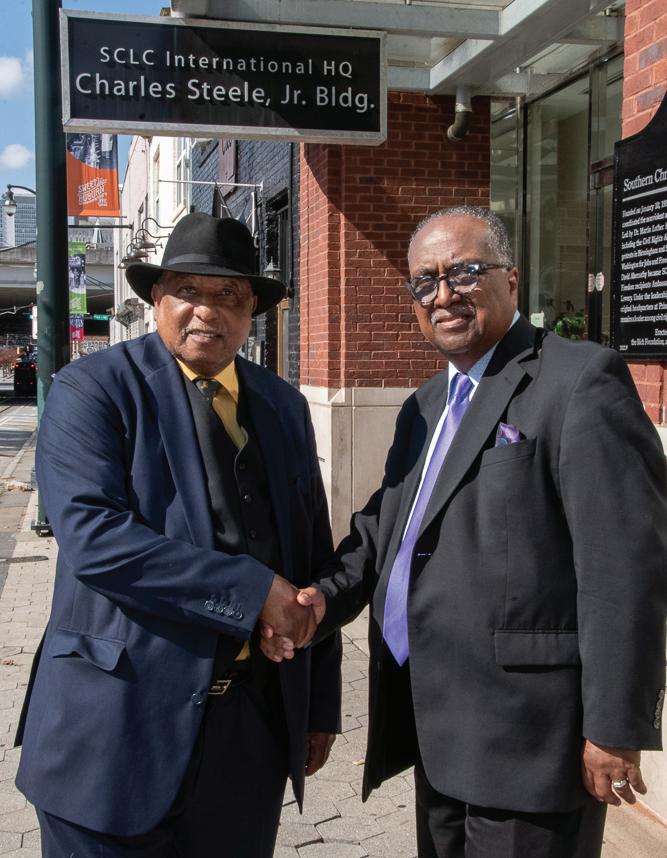
surrounding voting rights for millions then and right now in 2024.
Whether we are in Washington, DC, meeting Presidents, working with leaders like the late Congressman John Lewis, or working in board rooms on the ground level, Dr. Steele has given untold hours of service, asking little in return. We would not be here without his consistent pursuit of maintaining SCLC’s vast body of work.
I am convinced that President Steele was called out, to be called on, for such a critical time of his appointment, and I am eternally grateful that he answered the call.
I wish you luck with your next assignment on behalf of the entire SCLC Board of Directors.
Dr. Bernard Lafayette Jr. Chairman

We believe in equal opportunity for all regardless of race, creed, sex, age, disability, or ethnic background.
Eastern Fish Company
Mercedes- Benz of Arlington
Robert Byrd Attorney at Law
SDI Technologies Inc.
Federated Hermes Inc.
Associated Grocers Inc.
Western construction Group Inc.
Jonson Lexus
First Palmetto Bank
Jelly Belly Candy Company
Farmers & Merchants Bank
Clay County Board of Education
Associated Production Services Inc
Cooperative Energy


By Pauline Plummer, Covenant Daughters International
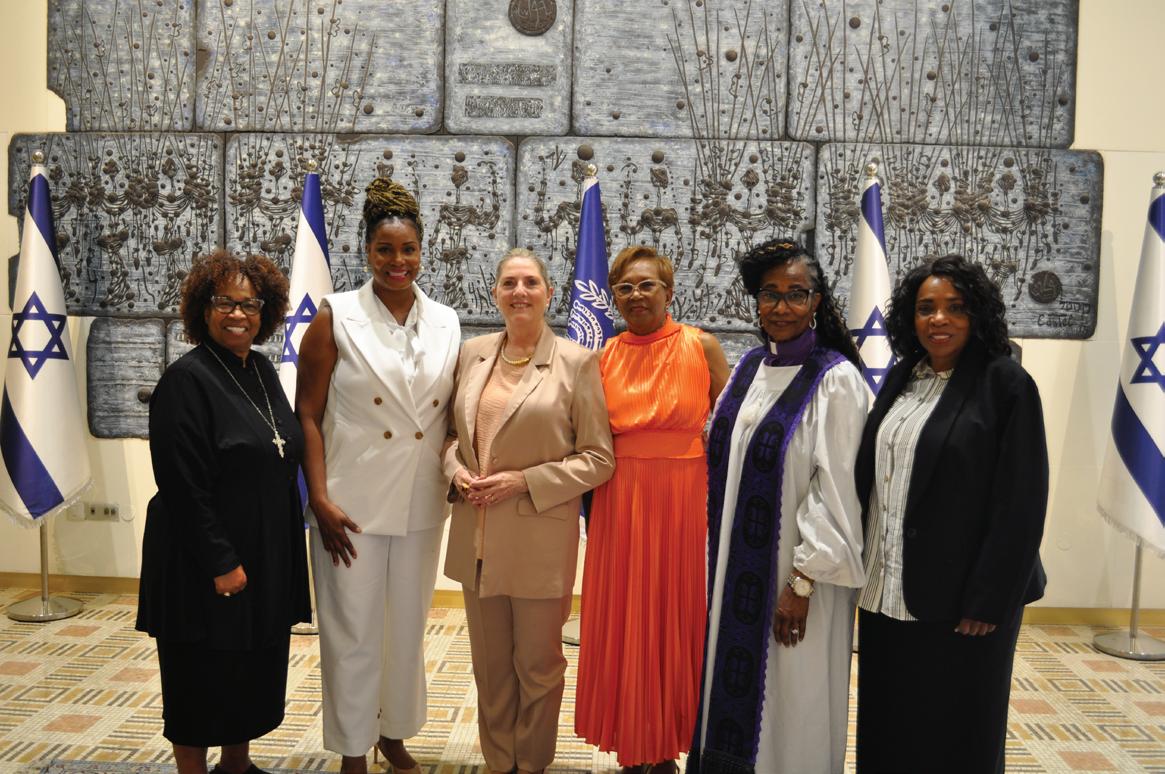
As the tenure of a First Lady in a civil rights organization comes to a close, it’s a poignant moment to reflect on the impact, challenges, and legacy left behind. Serving as the face and voice of the organization, the First Lady plays a pivotal role in advocating for justice, equality, and empowerment for marginalized communities.
Throughout her term as First Lady of the Southern Christian Leadership Conference (SCLC), Lady Cathelean Steele, has exemplified unwavering dedication, compassion, and resilience in the face of adversity. From grassroots activism to international advocacy, she has been a driving force behind countless initiatives aimed at advancing civil rights and social justice causes.
At the forefront of her agenda has been a commitment to amplifying marginalized voices and dismantling systemic barriers to equality. Whether advocating for voting rights, healthcare access, or criminal justice reform, Lady Cathelean Steele has tirelessly championed the rights and dignity of all individuals, regardless of race, gender, or socioeconomic status.
One of her most notable achievements has been her ability to foster meaningful dialogue and collaboration across diverse communities and stakeholders. By building bridges and forging alliances, she has mobilized support for critical issues and catalyzed positive change on local, national, and international levels.
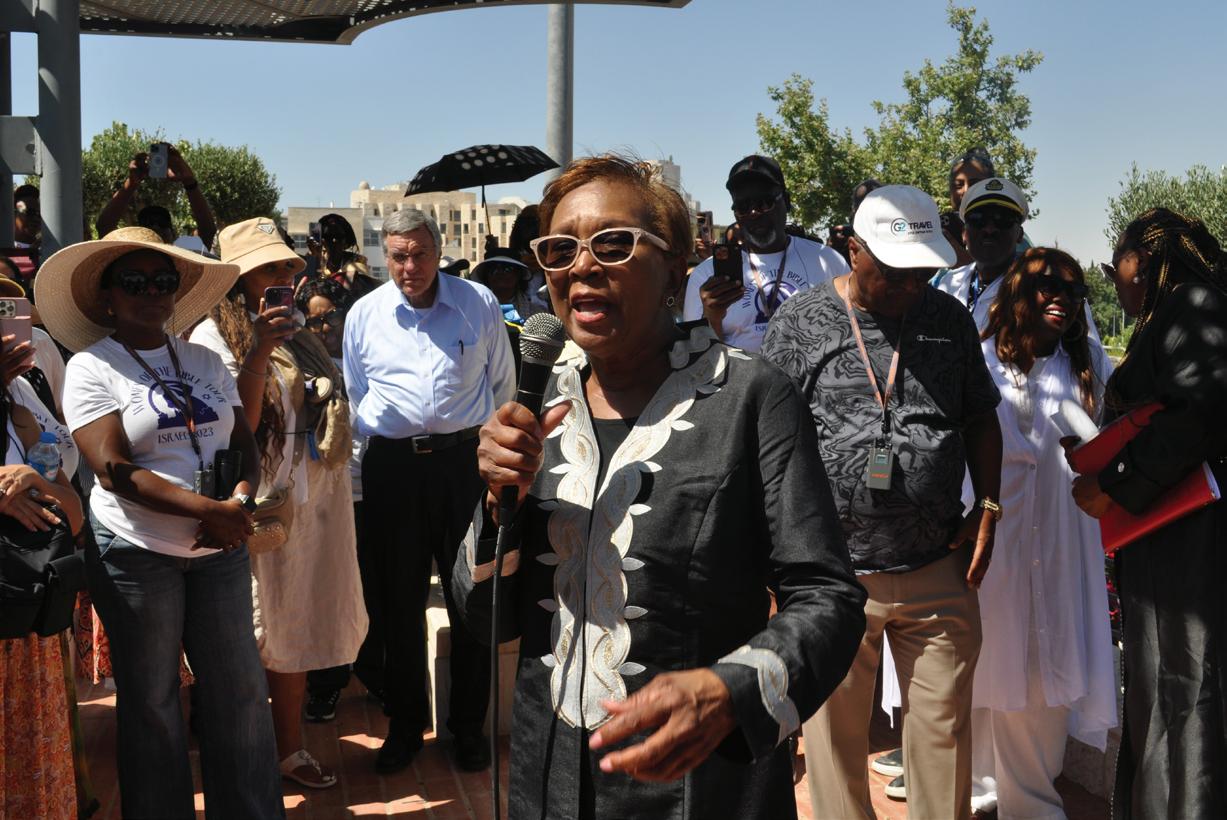
However, her tenure has not been without its challenges. Confronted with persistent discrimination, backlash, and resistance to change, Lady Cathelean Steele has demonstrated remarkable resilience and resolve. In the face of adversity, she has remained steadfast in her commitment to justice and unwavering in her pursuit of a more equitable society.
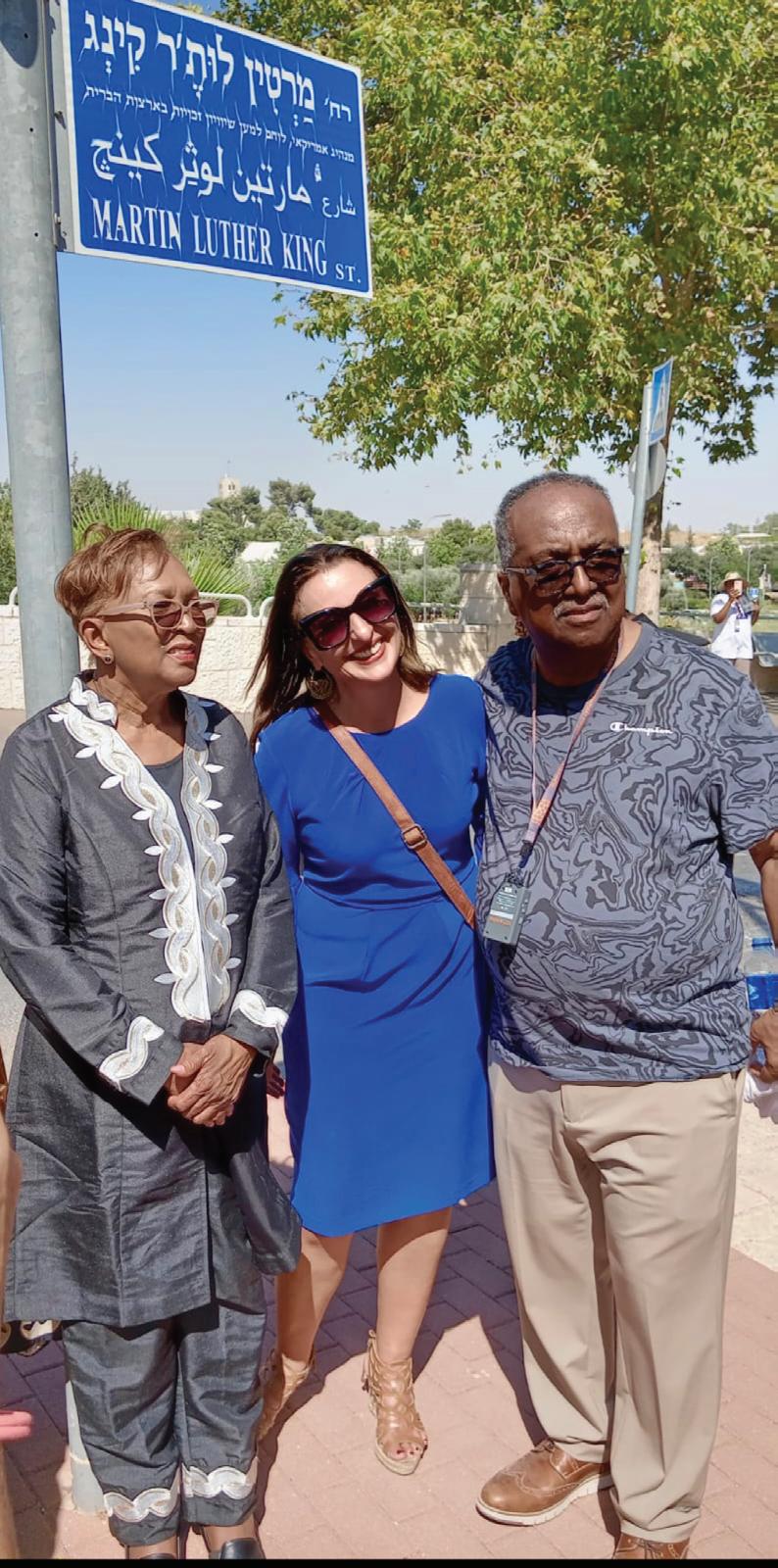
Moreover,Lady Cathelean Steele has been a source of inspiration and empowerment for countless individuals, particularly young people. Through mentorship programs, leadership development initiatives, and educational outreach efforts, particularly through her “Justice For Girls” initiative, she has empowered the next generation of activists and change-makers to carry the torch forward and continue the fight for justice.
As her term comes to an end, Lady Cathelean Steele leaves behind a profound legacy of leadership and service. Her impact will be felt for generations to come, as the seeds of change she has planted continue to flourish and bear fruit in communities around the world.
In closing, let us honor and celebrate the extraordinary contributions of Lady Cathelean Steele to the civil rights movement. Her tireless advocacy, compassion, and unwavering commitment to justice serve as a shining example for us all, inspiring us to continue the pursuit of a more just, equitable, and inclusive society.
“Championing Justice for Girls: A Legacy of Empowerment in the Fight Against Sex Trafficking”

Throughout her tenure as First Lady of the SCLC, civil rights organization, Lady Cathelean Steele has been a tireless advocate for justice, particularly for vulnerable populations such as sex trafficking victims. Her program, “Justice for Girls,” stands as a beacon of hope and empowerment for those who have been exploited and marginalized.
“Justice for Girls” is not just a program; it’s a lifeline for those who have fallen victim to the horrors of sex trafficking. Under Lady Cathelean Steele’s leadership, this initiative has provided comprehensive support services to survivors, including shelter, counseling, legal assistance, and job training. By addressing the complex needs of survivors, the program helps them rebuild their lives and reclaim their dignity.
Beyond direct services, “Justice for Girls” also works to raise awareness about the prevalence of sex trafficking and advocate for policy changes to combat this insidious crime. Through educational campaigns, community outreach, and legislative advocacy, Lady Cathelean Steele has been instrumental in bringing attention to this issue and driving systemic change.
SCLC National Magazine/ Convention 2024 Issue
One of the hallmarks of “Justice for Girls” is its survivor-centered approach. Lady Cathelean Steele and her team understand that survivors are not just victims; they are resilient individuals with unique strengths and potential. By centering survivors’ voices and experiences, the program empowers them to become advocates for change in their own right.
Moreover, “Justice for Girls” recognizes the intersectionality of sex trafficking with other forms of oppression, such as gender-based violence, poverty, and racism. Through a holistic, intersectional lens, the program addresses the root causes of exploitation and works towards creating a more just and equitable society for all.
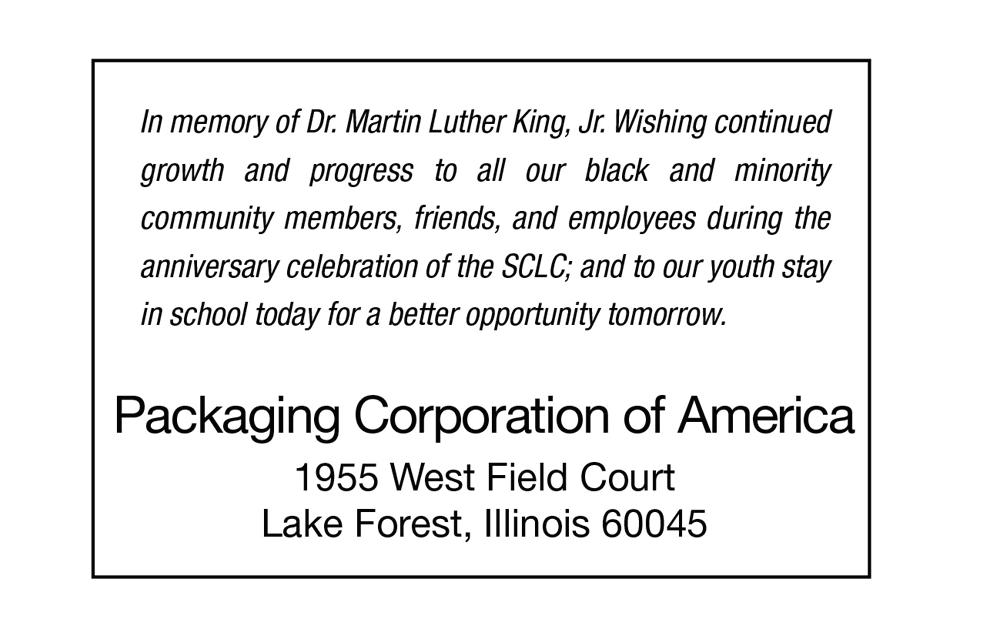
As Lady Cathelean Steele’s term comes to an end, her legacy in the fight against sex trafficking will endure. Countless lives have been transformed and empowered through the “Justice for Girls” program, and its impact will continue to be felt for years to come. As we reflect on her tenure, let us honor unwavering dedication, compassion, and commitment to justice for all.

Ending racial injustice requires all of us to work together and take real action. What can you do to help?
Educate yourself about the history of American racism, privilege and what it means to be anti-racist. Educate yourself about the history of American racism, privilege and what it means to be anti-racist.
Commit to actions that challenge injustice and make everyone feel like they belong, such as challenging biased or racist language when you hear it.
Vote in national and local elections to ensure your elected officials share your vision of public safety.
Donate to organizations, campaigns and initiatives who are committed to racial justice. Let’s come together to
Visit lovehasnolabels.com/fightforfreedom
National Magazine/ Convention 2024 Issue
By: Debbie Ellison, Co-Executive Director of Global Humanitarians Unite
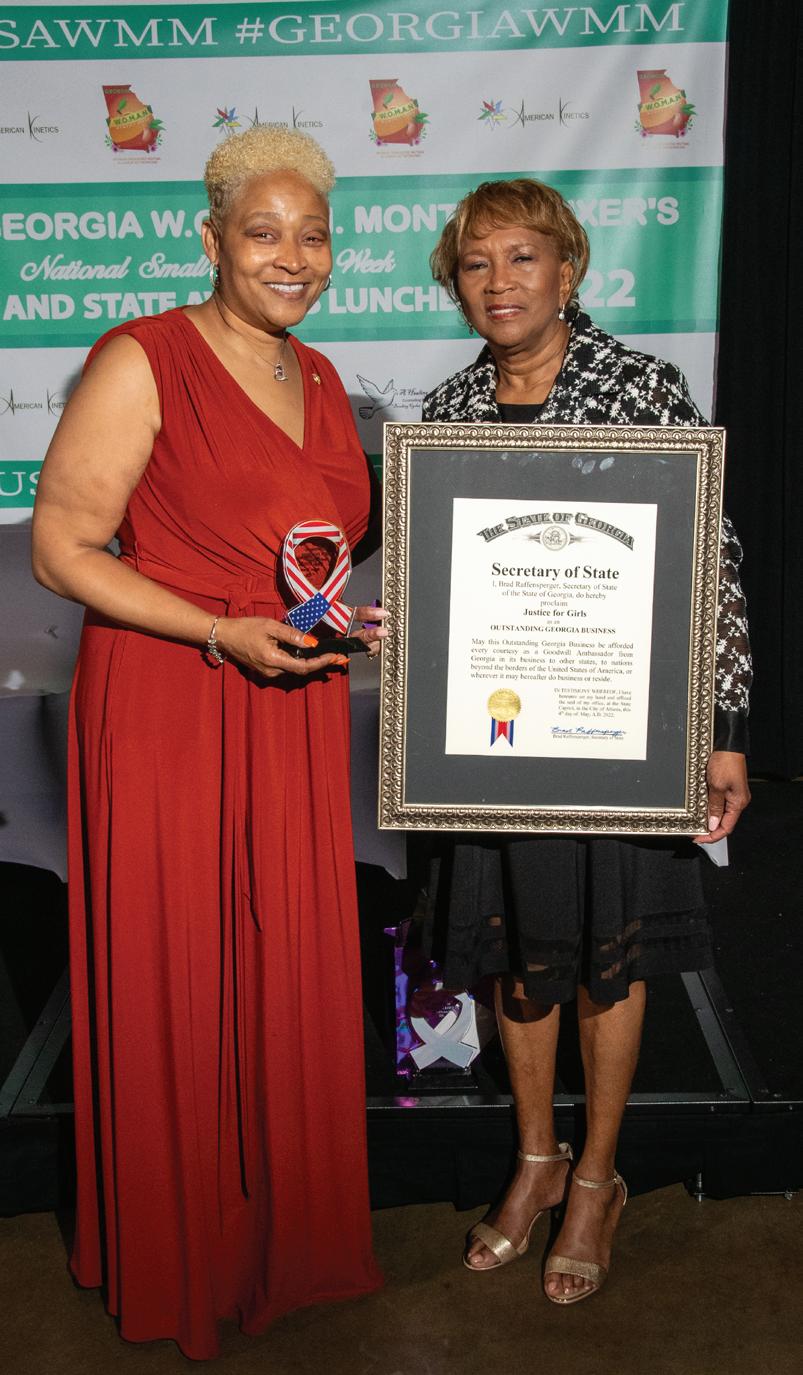
Mrs. Cathelean Steele has been involved with the national SCLC since 2004 when her husband, Dr. Charles Steele Jr., became SCLC’s national president. Now after 20 years, they are retiring from SCLC, but certainly not from the civil rights work they have been engaged in for so many years.
When they came to the SCLC national office, civil rights advocacy was not new to the Steeles. Mrs. Steele’s parents were involved in civil rights and she grew up having the mindset of standing up for what she believed in. Her parents made her integrate two schools, one in Eutaw, Alabama, when she was in the eighth grade and another school in Montgomery, Alabama, when she was in the ninth grade.
And she has supported her husband during his many years of serving in various political offices, his civil rights activism and a lot of marching, and his long involvement with SCLC. Dr. Steele was the president of their local SCLC chapter and the first African-American on the Tuscaloosa, Alabama, city council.
“That was the beginning,” she remembers, “and it just continued with him fighting for the rights of people. And I just got used to it.”
He later became an Alabama state senator and vice president of the national SCLC.
Mrs. Steele has also played a key role in the national SCLC. She has coordinated the national conventions “and basically anything else they needed for me to do. I spend most of my time working on the convention and working with Justice For Girls.”
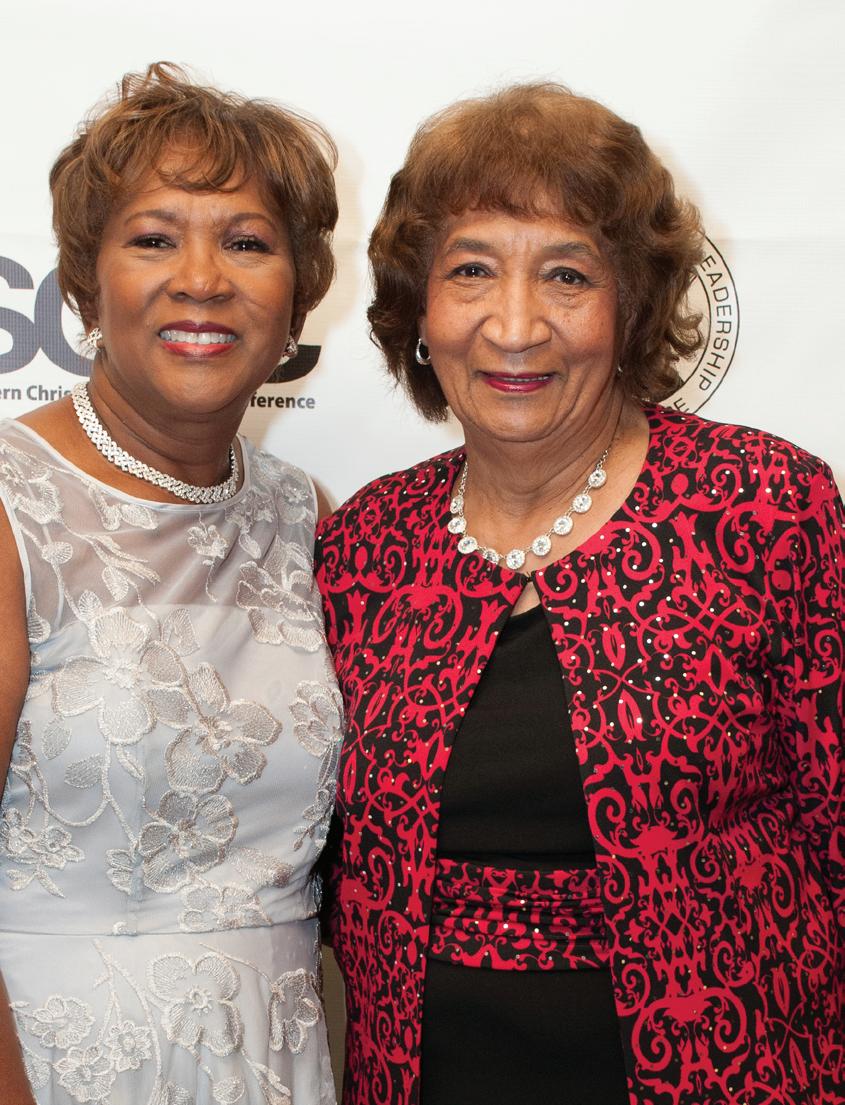
Justice For Girls is a sex trafficking prevention initiative she founded. “When I first got here,” she says, “I didn’t know a lot about sex trafficking. And I met this young lady who had been trafficked and she was helping other young people who were being trafficked get out of that industry. When I met her, I was so filled with a desire to do something myself. And that’s when I started my own initiative called Justice For Girls.
“Instead of helping girls who were already trafficked, I felt we should try to prevent it. So I talked with a group of people and we decided that we would be a sex trafficking prevention program.”
She has worked tirelessly to educate girls and parents about sex trafficking. She has met for years with a group of girls at John Lewis Invictus Academy and has spoken in schools throughout the United States about sex trafficking.
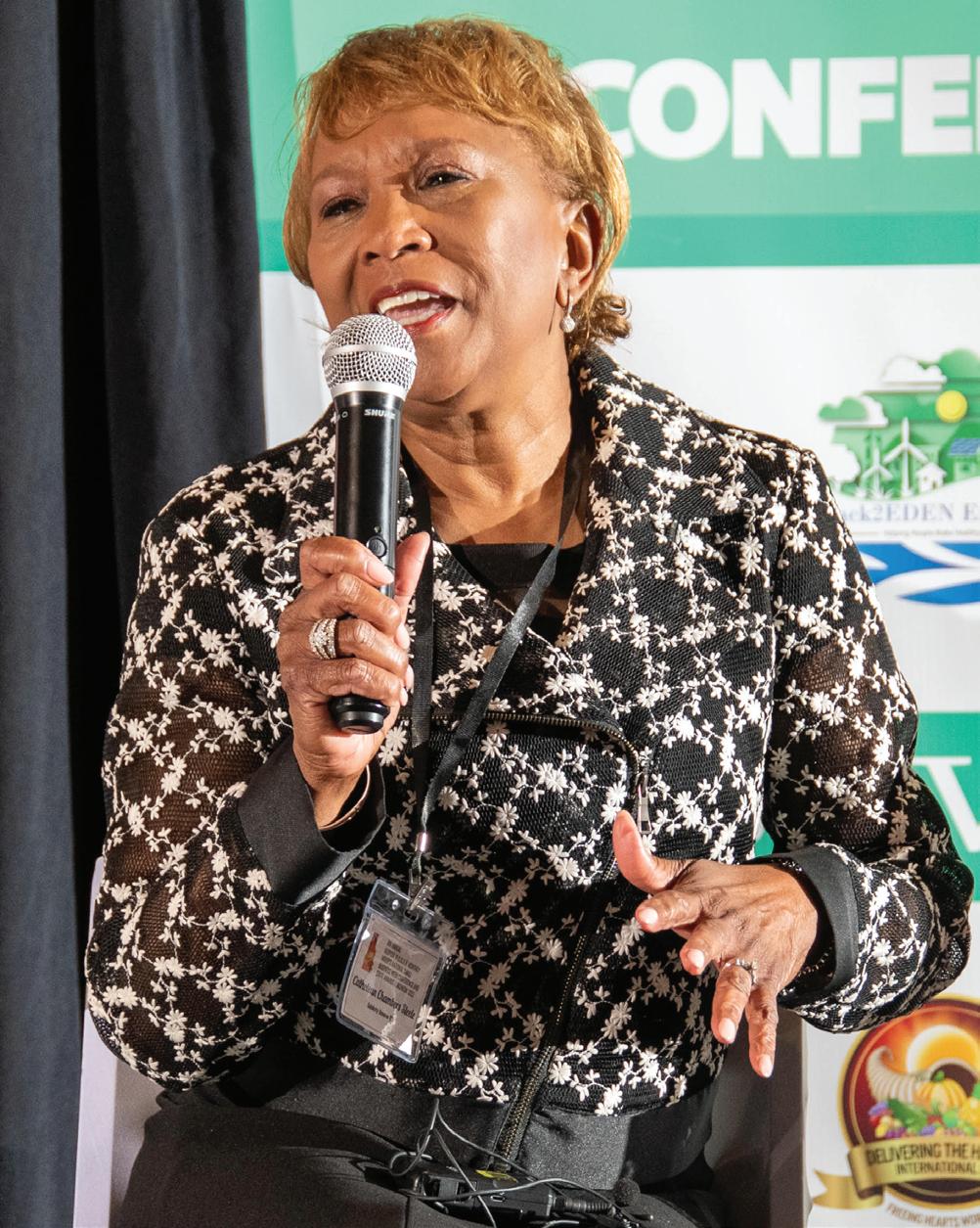
“I’ve spent a lot of time, not just teaching the kids, but when I go schools, I talk to the parents and say, ‘Sex trafficking is real. You have to watch your kids. You have to be involved in their lives. You have to talk to your kids. When they leave out that door, you have to warn them that there are predators out there.’ ”
She has loved working with SCLC. “You get to meet people that you would never meet. Even though I was a teacher and taught world history and Southern history, you don’t know until you’re in the arena. I’ve learned so much more about civil rights even though I met Dr. King when I was in elementary school.
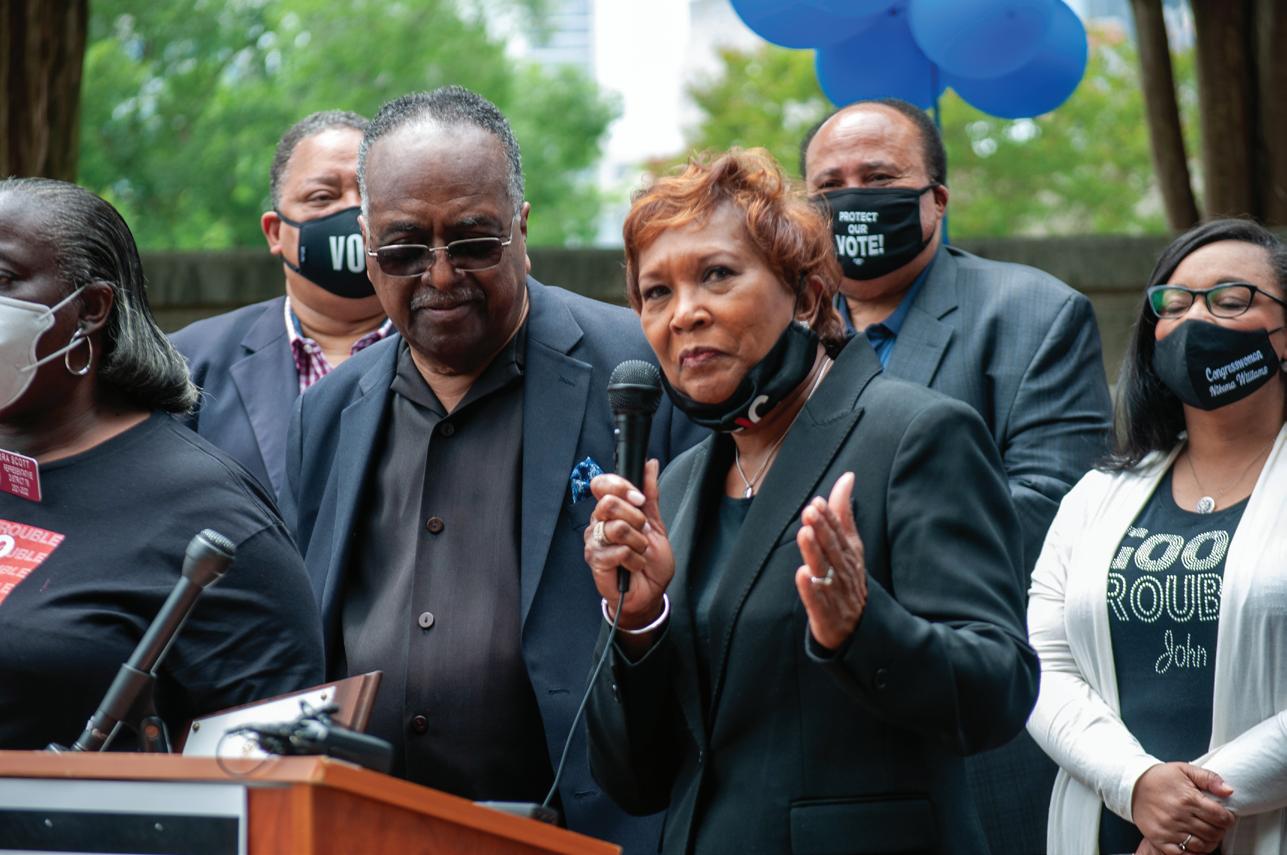
“My father heard that Dr. King was going to be speaking at a local church in our hometown. He took me out of school and took me to the church. We couldn’t get in because it was full.”
But her father took her across the street to wait for Dr. King to come out. He said, ‘When Dr. King comes out, he’s going to come over.’ And he did. And I was the only kid there and I got a chance to shake Dr. King’s hand. I was so excited because I had heard so
National Magazine/ Convention 2024 Issue
much about Dr. Martin Luther King.”
Her family has been through some tough times. In Tuscaloosa, she says, “They tried to burn our home down. They poured gasoline on our front yard and it burned up to the hedges. And the fire department was able to get there before our house was totally destroyed by the fire.
“When our girls were young, they would answer the phone and people would say ugly things to them. I would answer the phone and I would get ugly remarks, like they would call me the b-word. And I realized that was just all a part of making a change.”

For employment opportunities visit us at https://rpijobs.rpi.edu

She has traveled a lot speaking on behalf of the Southern Christian Leadership Conference and on behalf of Justice For Girls trying to educate people. She and Dr. Steele have been to 13 countries.
“I was invited to Israel before the war started to speak to over 600 students there. I learned that there is a street in Israel named Dr. Martin Luther King Jr. Street. And there’s a forest in Israel named the Coretta Scott King Forest. We went to the forest and made a statement there. And I was able to lead the kids on Martin Luther King Jr. Street.”
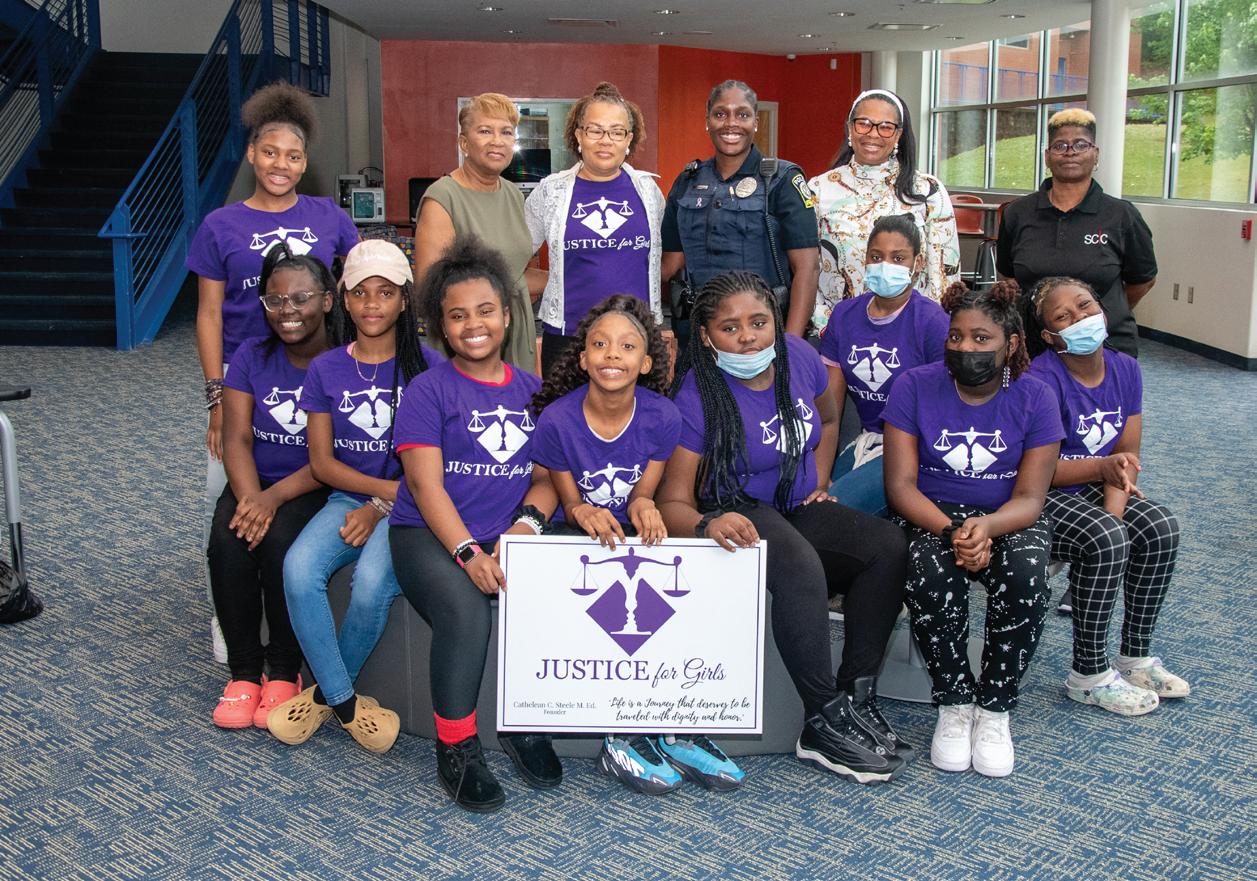
And she has met a lot of amazing people. She sat next to Rosa Parks at an SCLC convention in 1986 and has met Coretta Scott King several times. When they were in Germany, they met President Joachim Gauck and she had lunch with his wife.
She says that one of the highlights of her life was being friends with Mamie Till-Mobley, the mother of Emmett Till, a 14-year-old African American who was brutally beaten and lynched in Mississippi in 1955 after being accused of offending a white woman.
“She spoke to my students about Emmett’s death and she said she wanted the world to know not only know what happened to Emmett, but she wanted the world to learn what could happen when hatred is involved. And that we have to have love in our hearts, not only for people of our color, but for
all people.”
Even though Mrs. Steele and Dr. Steele will be leaving SCLC, she says she will continue with Justice For Girls and help at SCLC whenever she is needed. She also would like to travel more.
“I think my greatest accomplishment here was just to be a helpmate to my husband. Whatever he needed, I was willing to try. And also working with Justice For Girls.
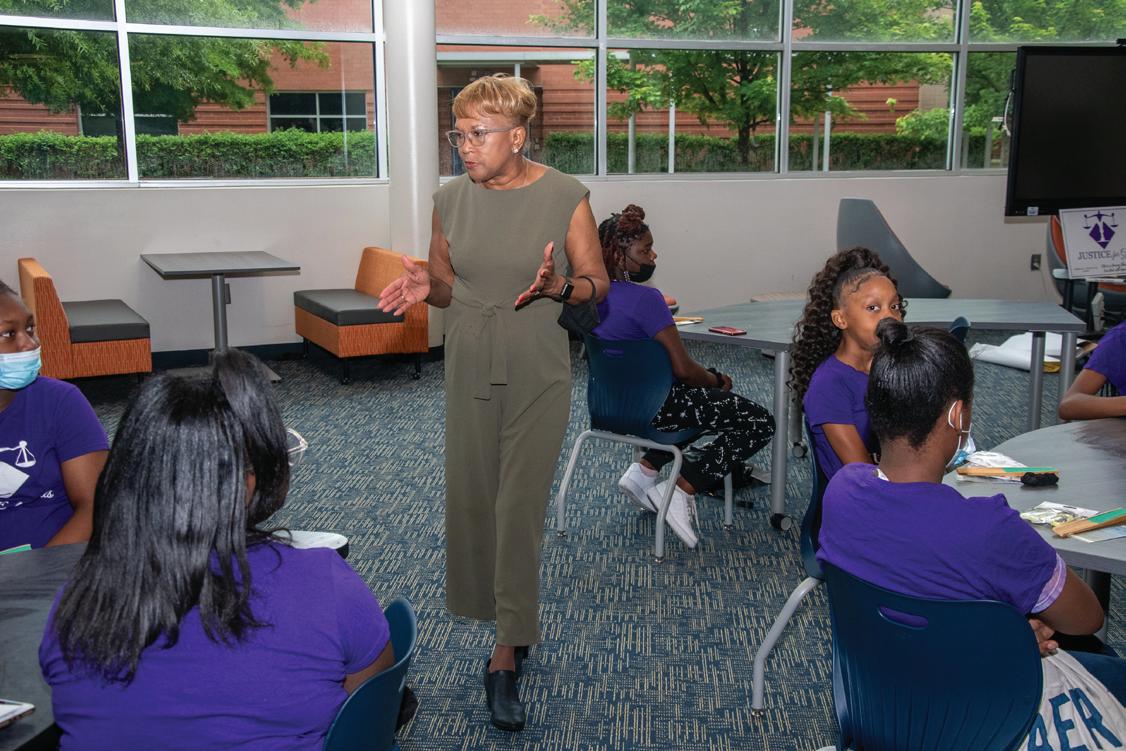
“I hear people say, ‘I don’t see how you do it and you don’t have any hatred in your heart.’ And I say I don’t have any hatred in my heart because God forgives us. So who am I not to forgive another person who mistreated me?

“We’ve had ups and downs, but you grow from your downs. Whatever is negative in your life, you grow from that negativity and you help other people to grow. You have to understand that you can’t put yourself down in a valley because somebody else is in a valley. You have to pull them out of the valley because if you pull them down, you’re going down with them.
“I would like for people to know that the last thing that you need in your life is hatred. The first thing that you need in your life is love and forgiveness. Things change, people change, but the work’s always there. So we can always continue to work, not only to better ourselves, but to better the lives of others.”
Even though she is retiring from SCLC, her legacy will remain. That little girl who was so excited to meet Dr. Martin Luther King Jr. and who integrated two schools still pushes her to stand up for what she believes in and to continue the work of spreading love instead of hate in the world.

Debbie Ellison is the Executive Director of Global Humanitarians Unite.





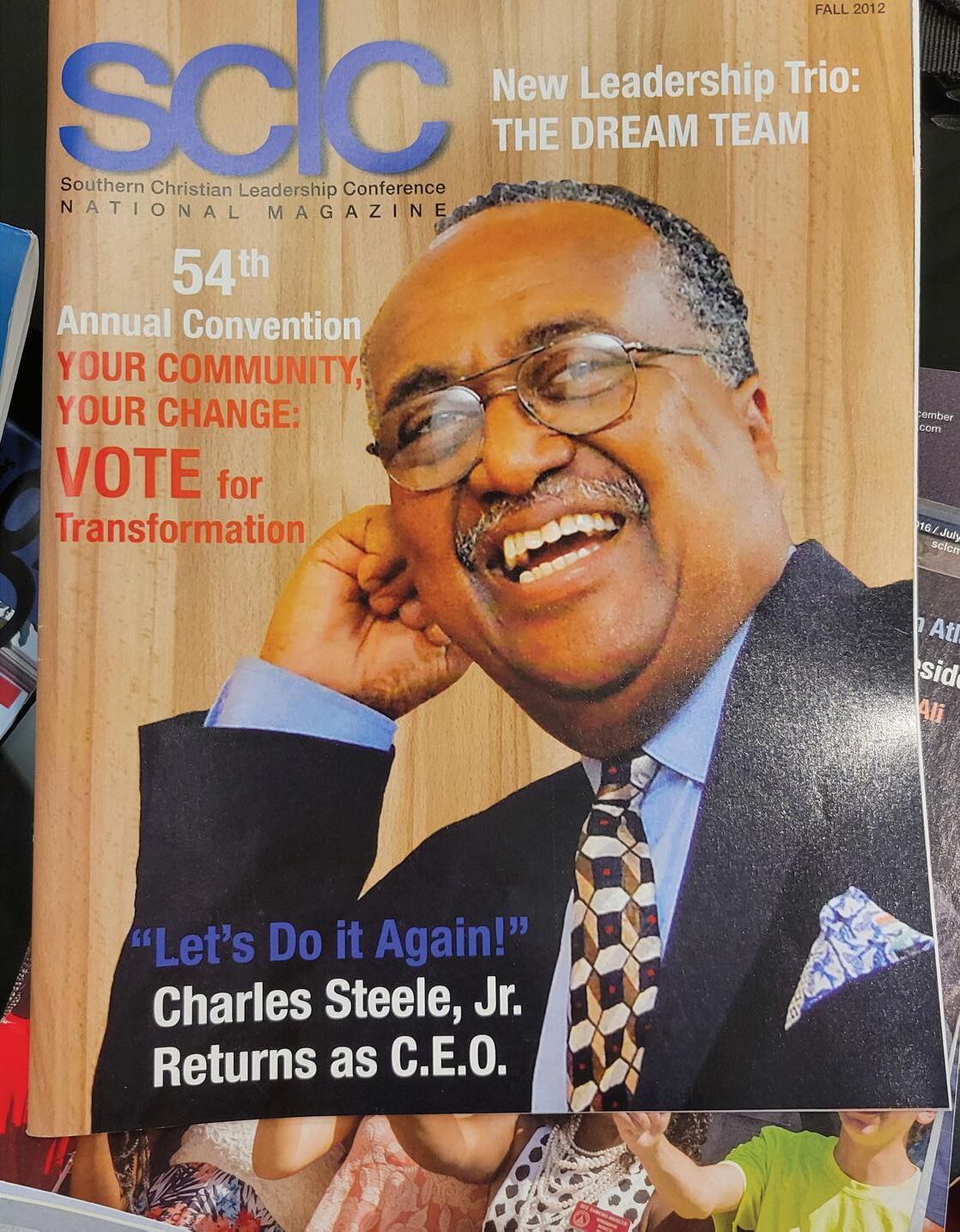
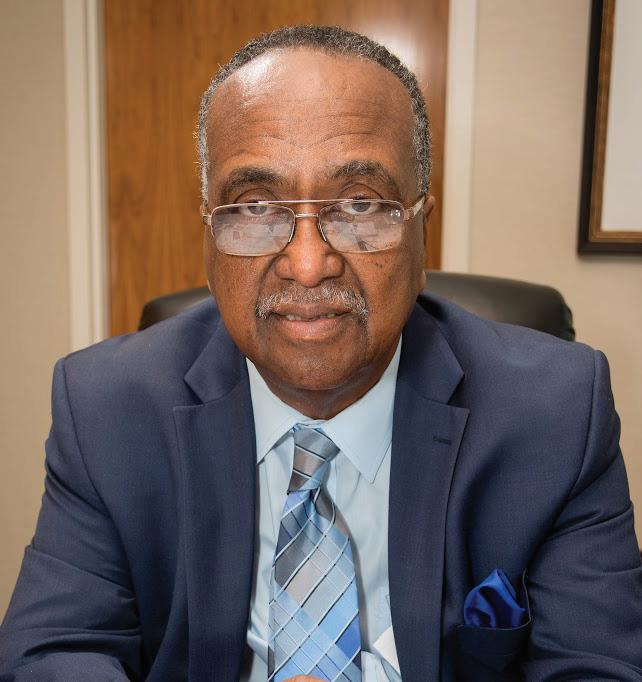
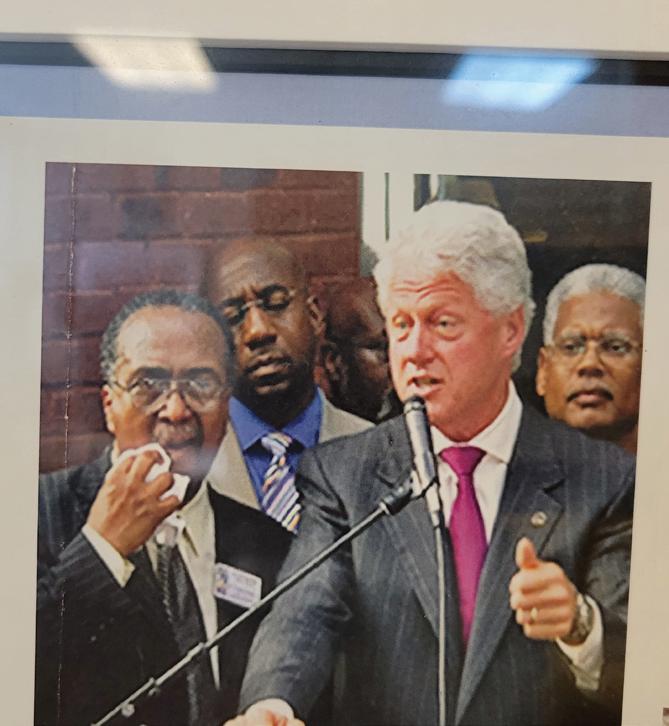
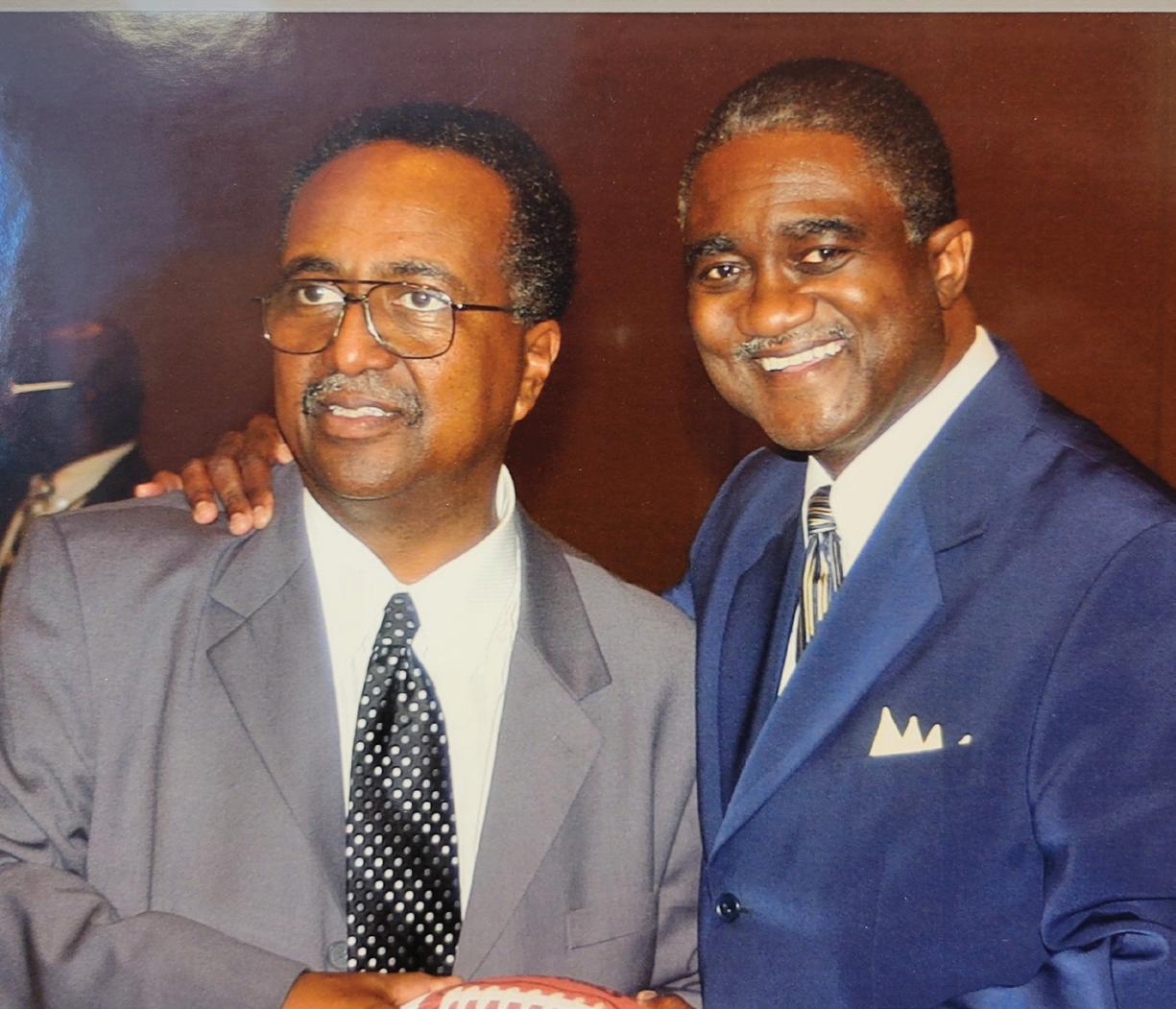
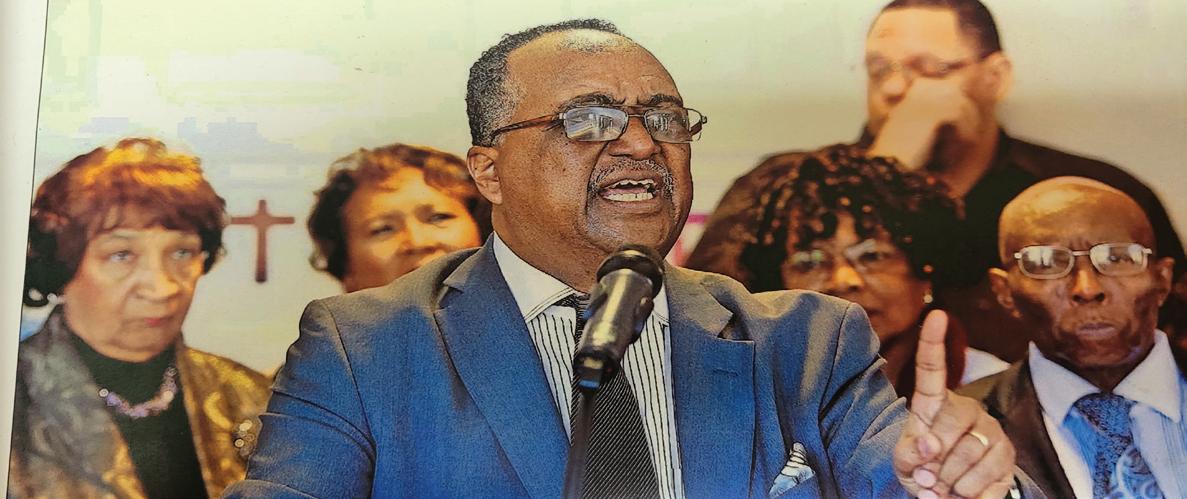
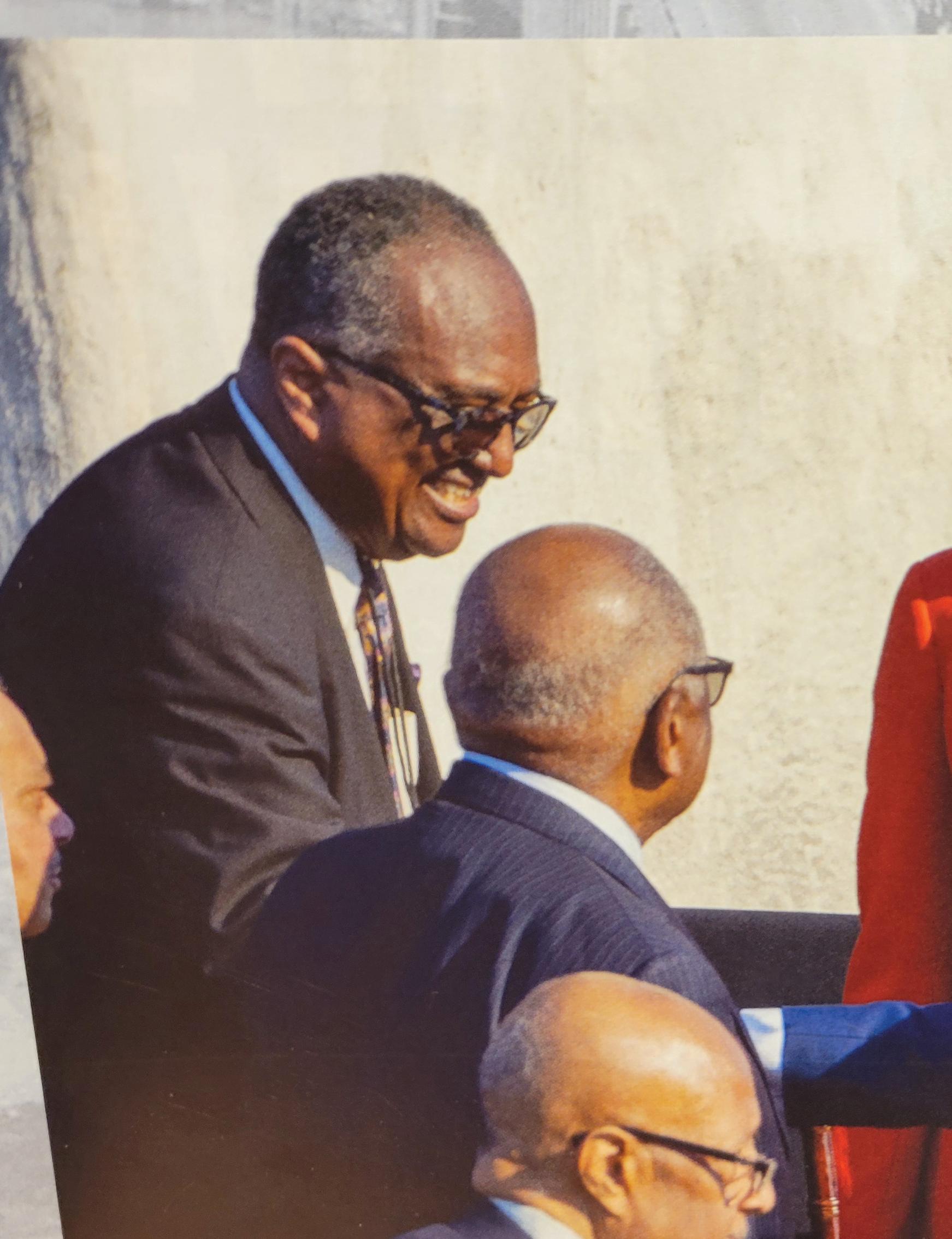

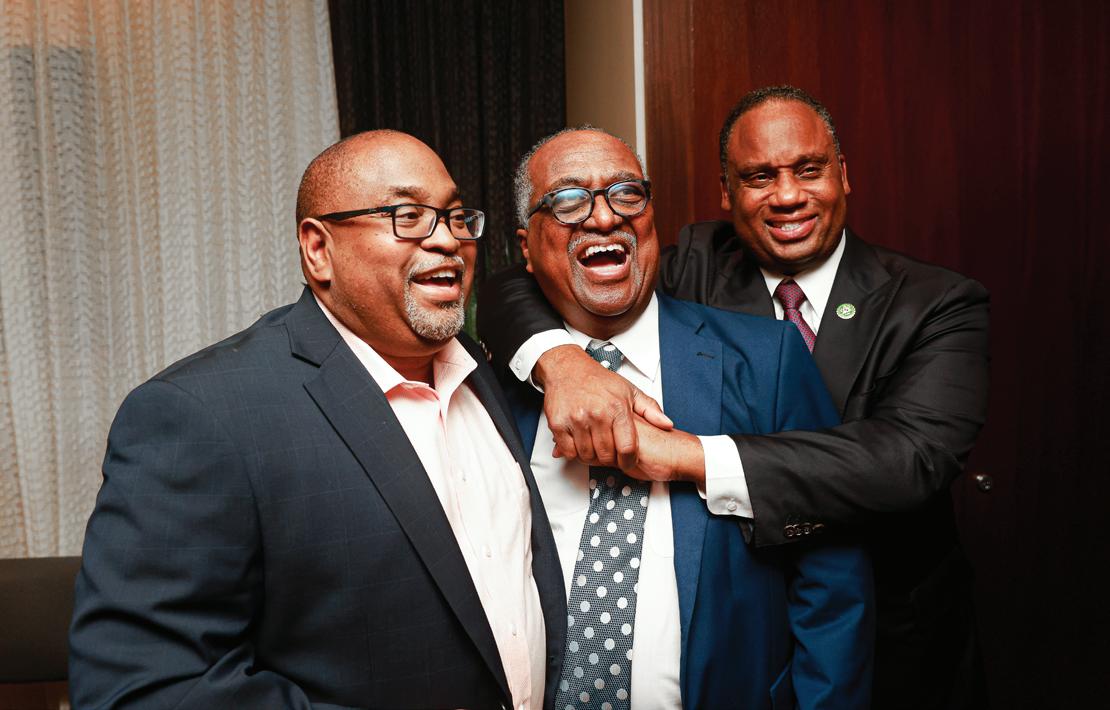
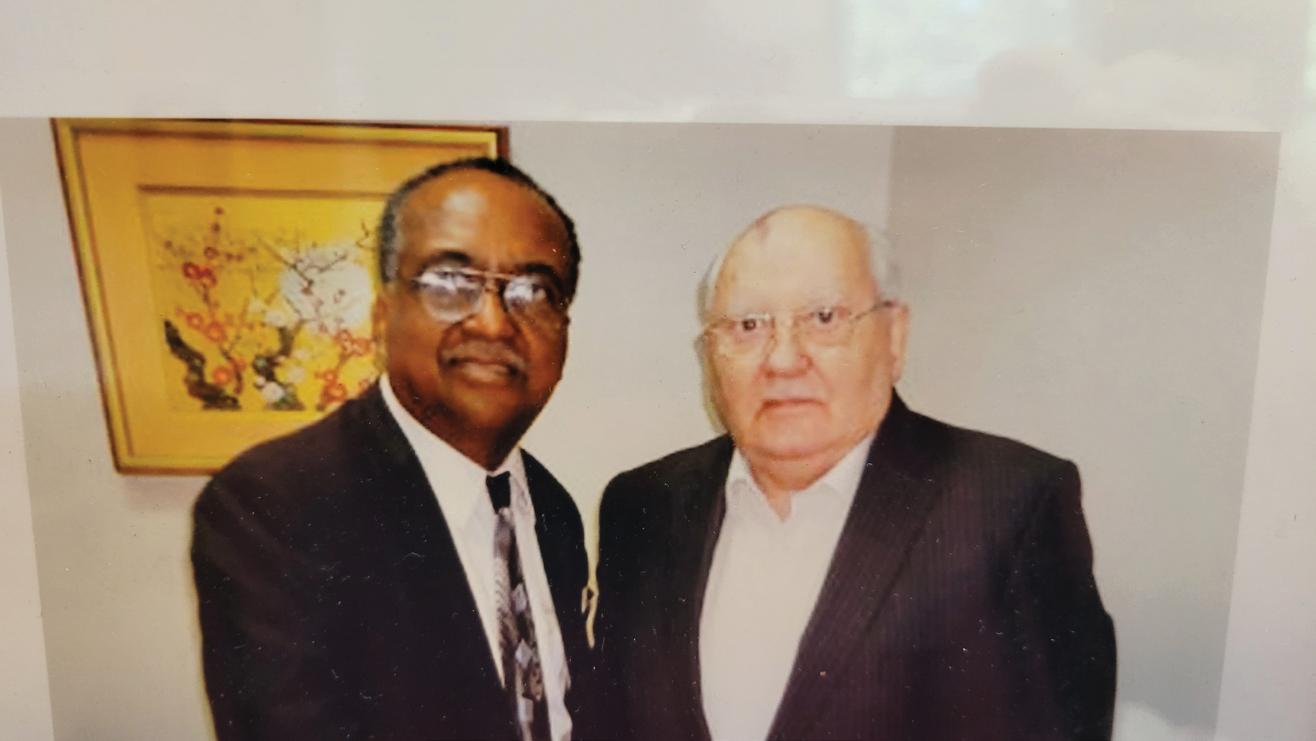
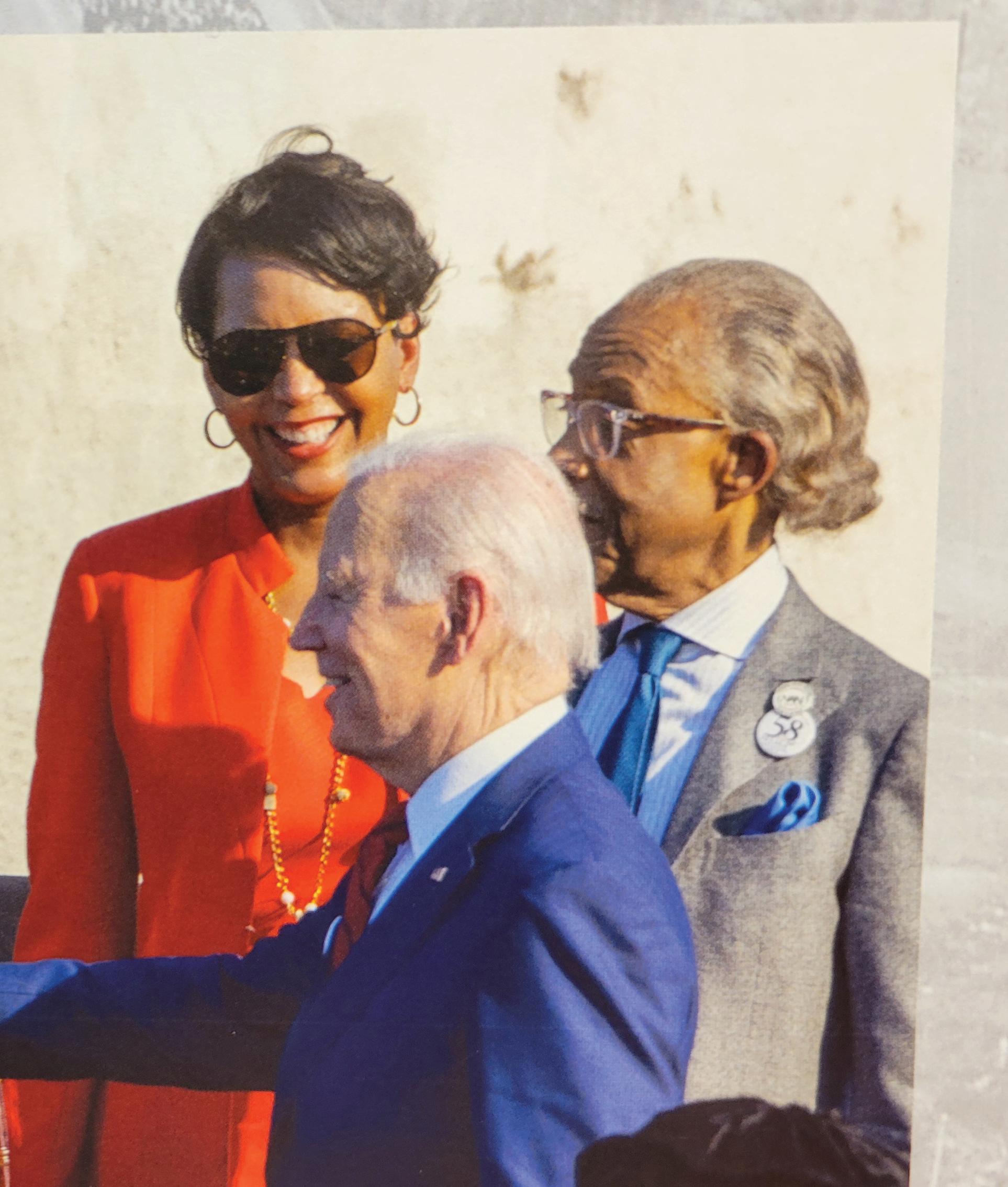
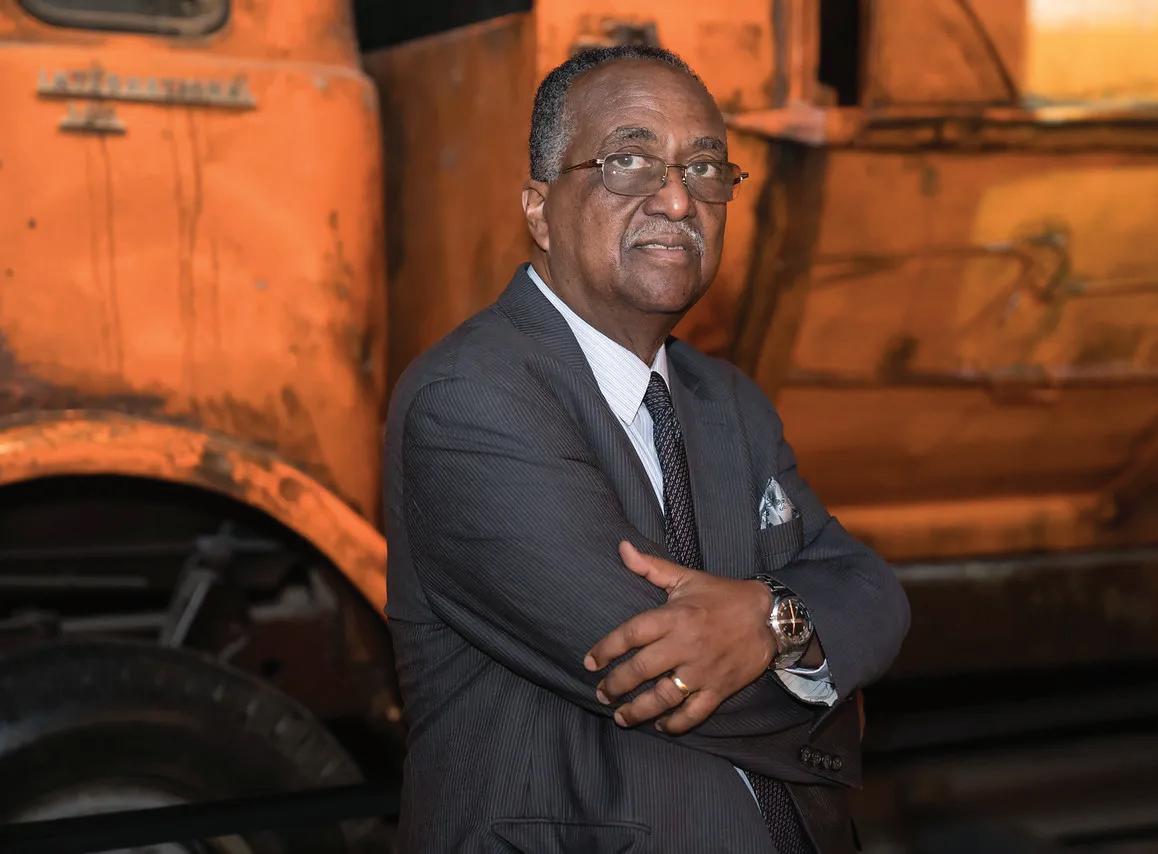

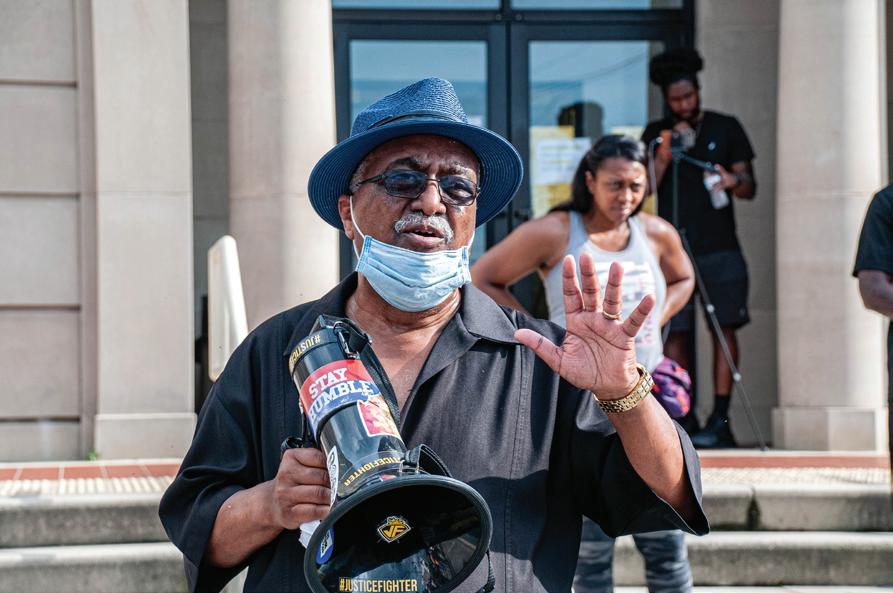
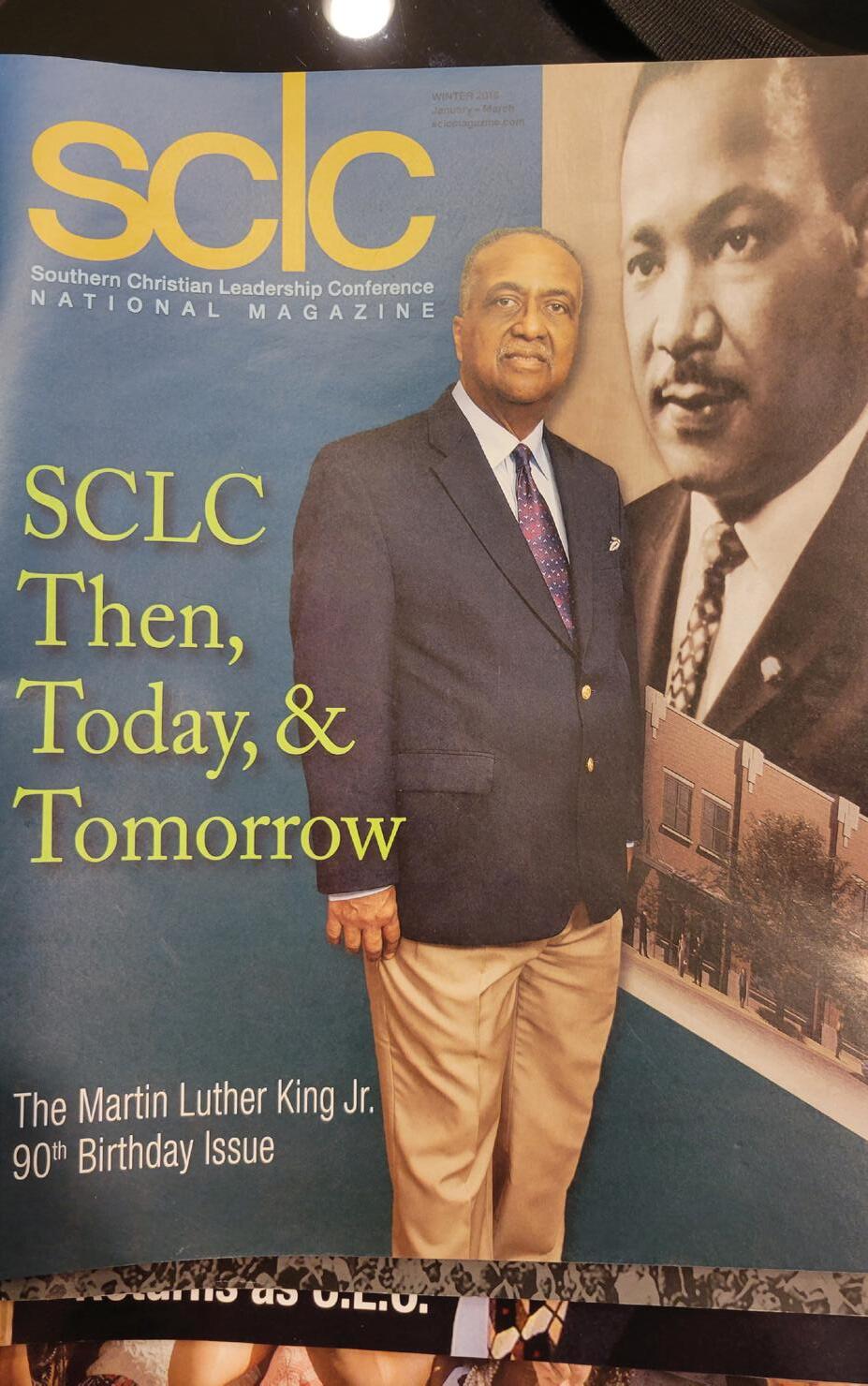
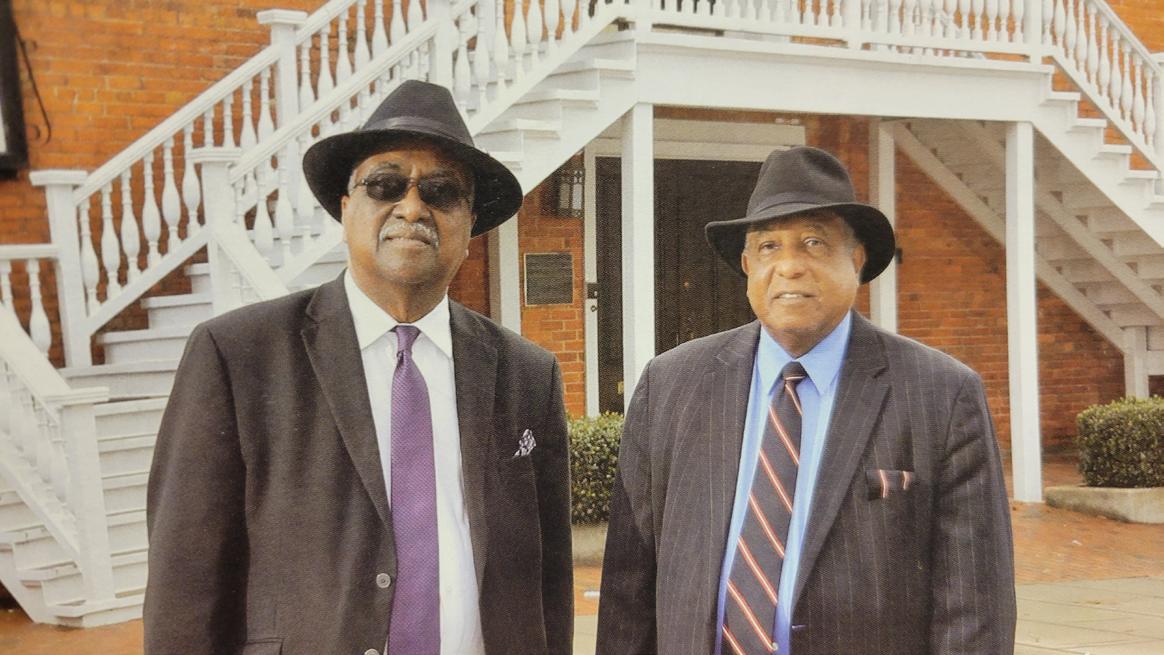
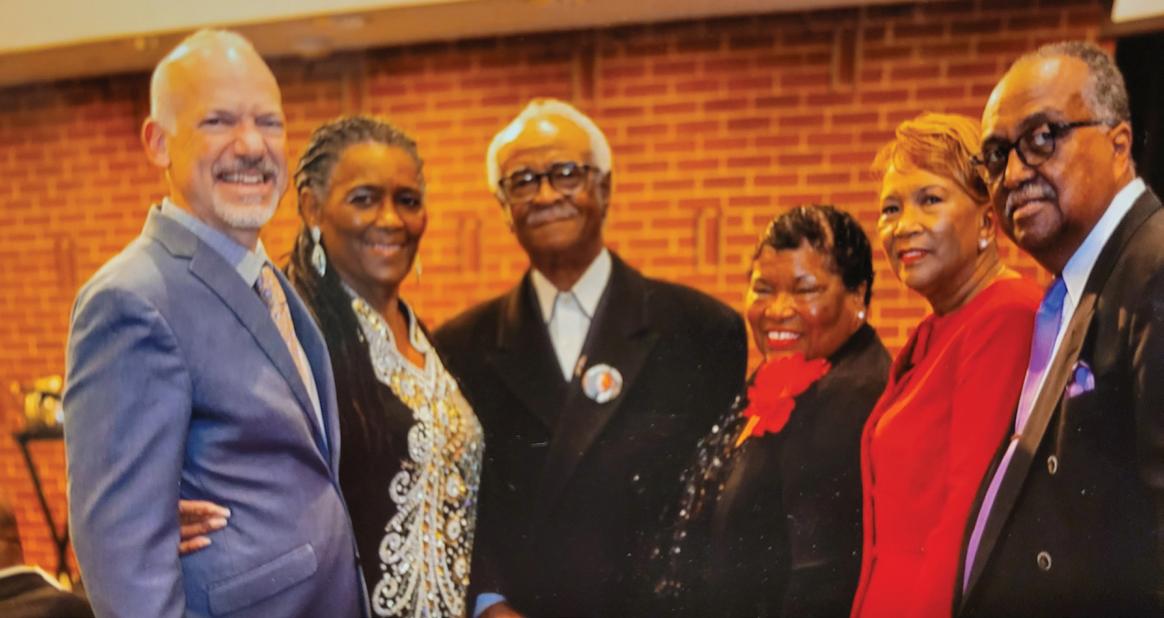
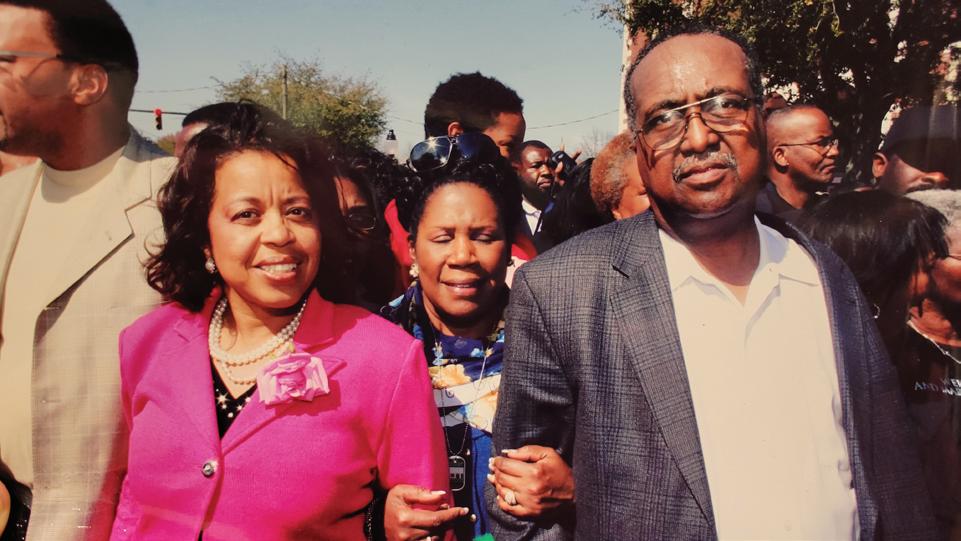
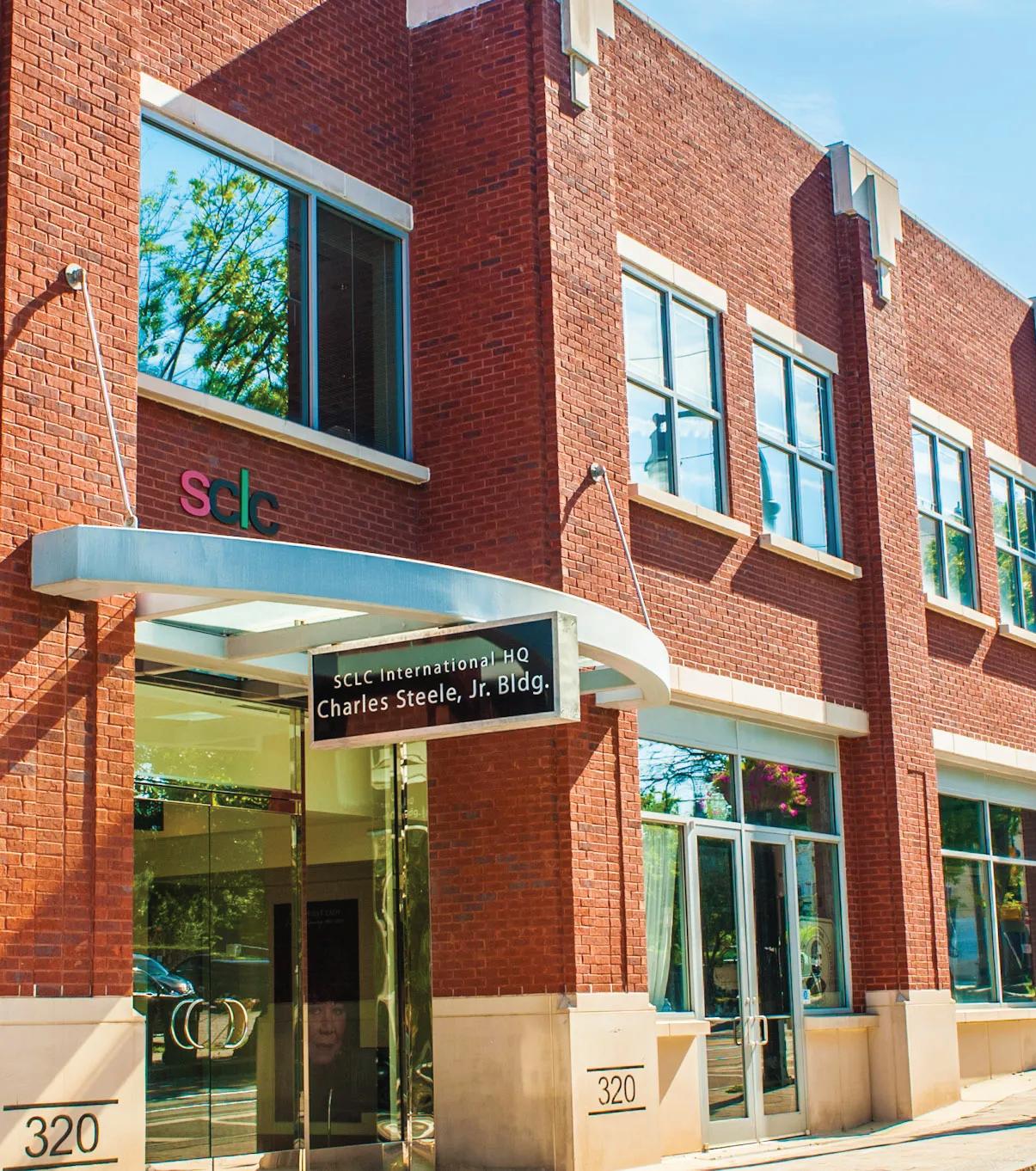
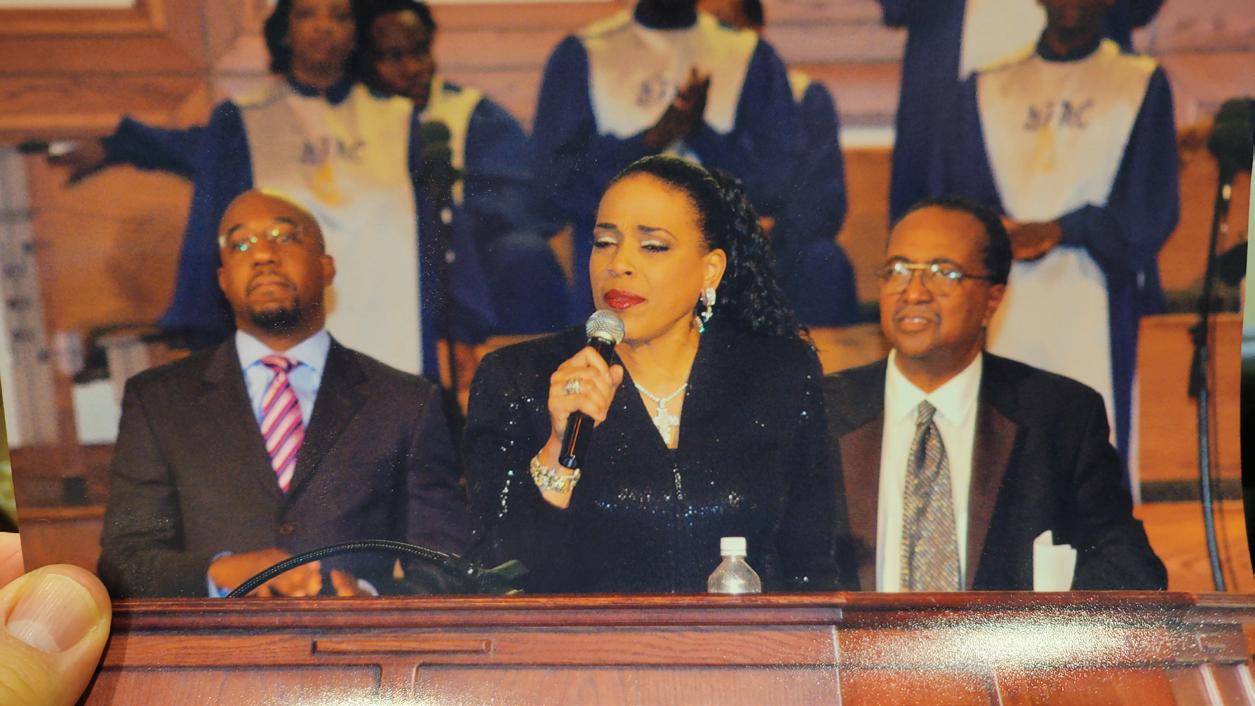
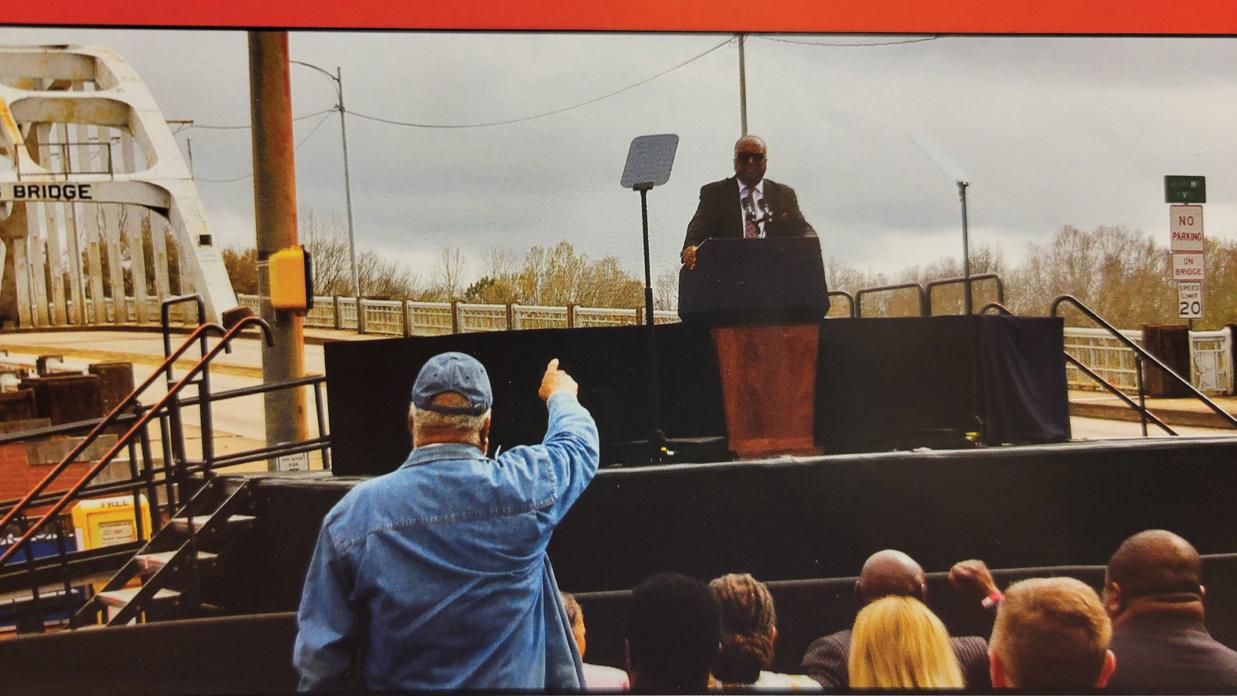

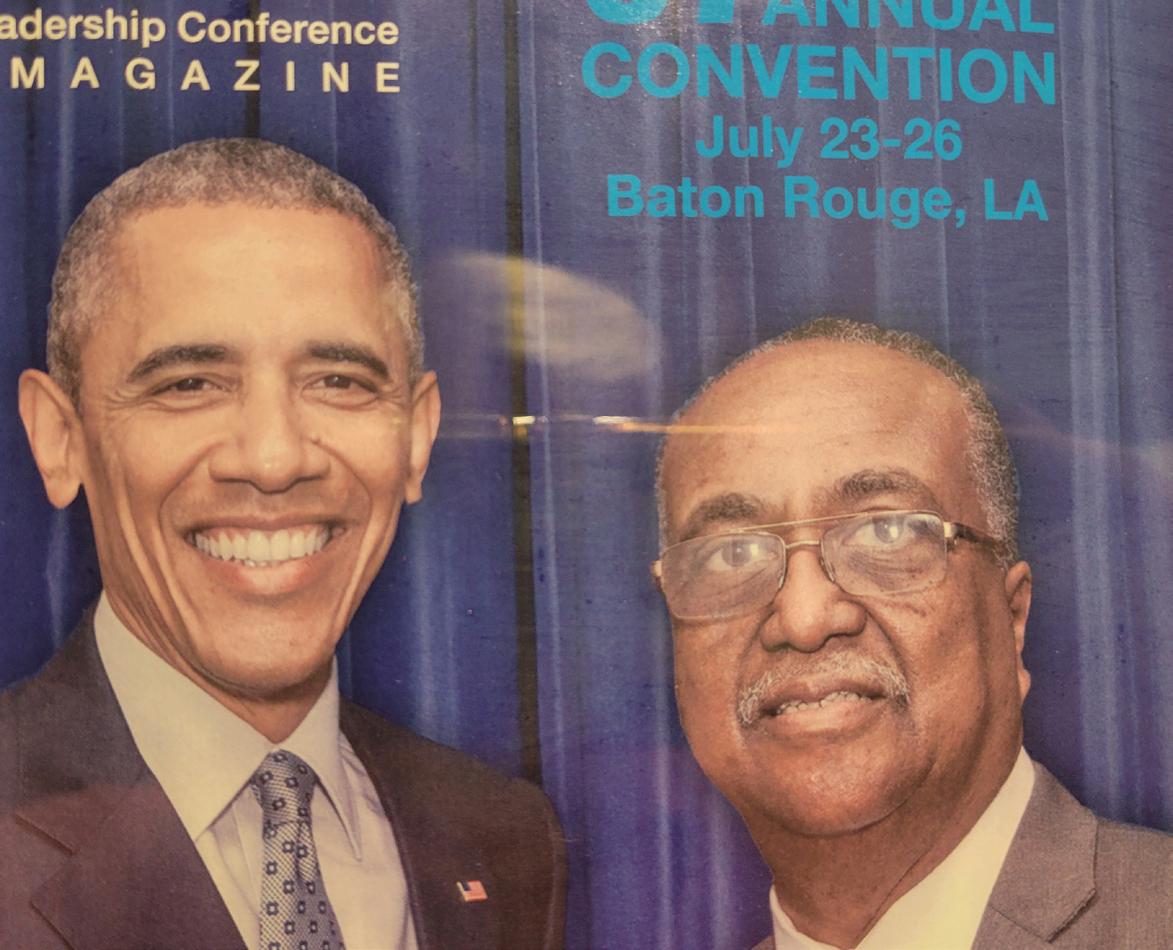
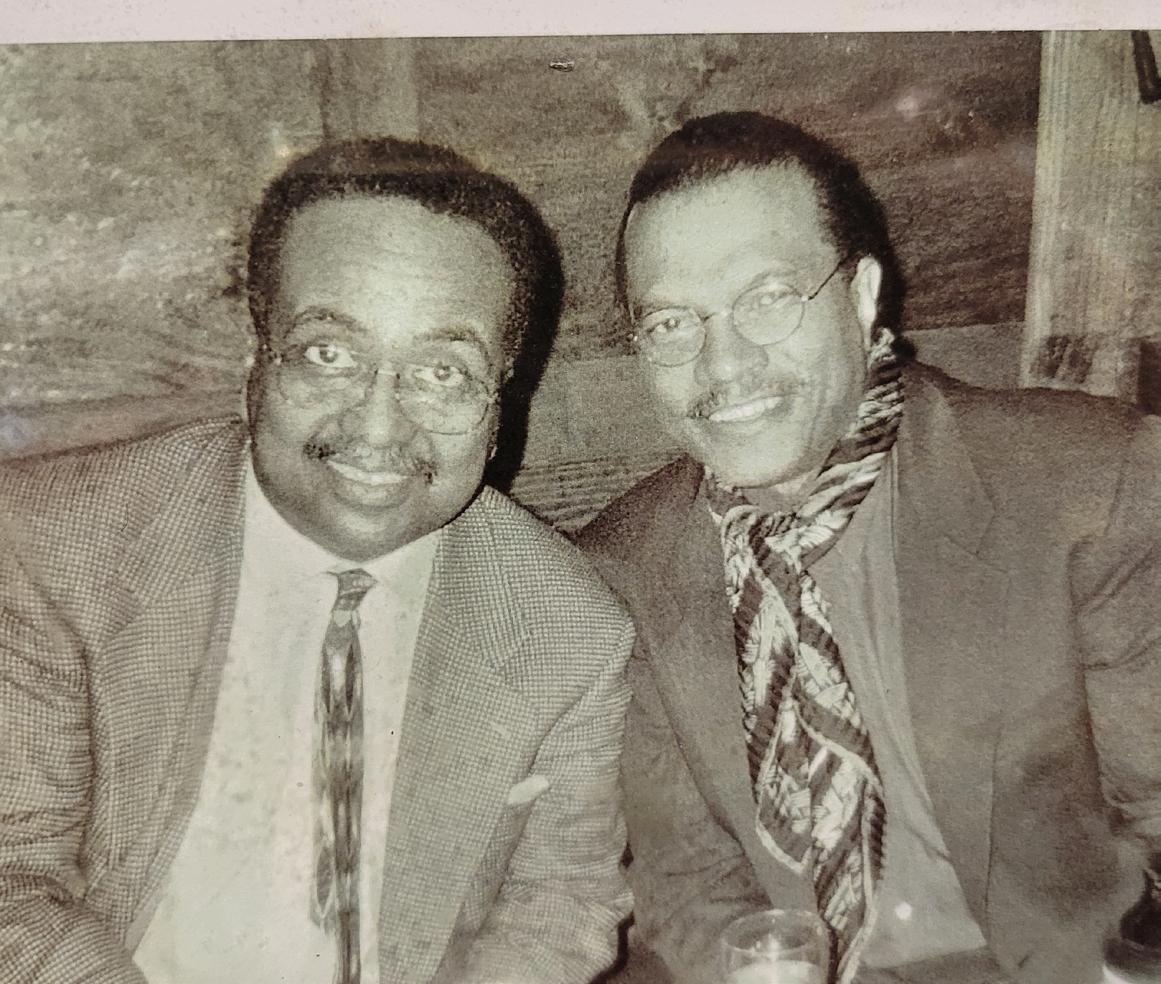
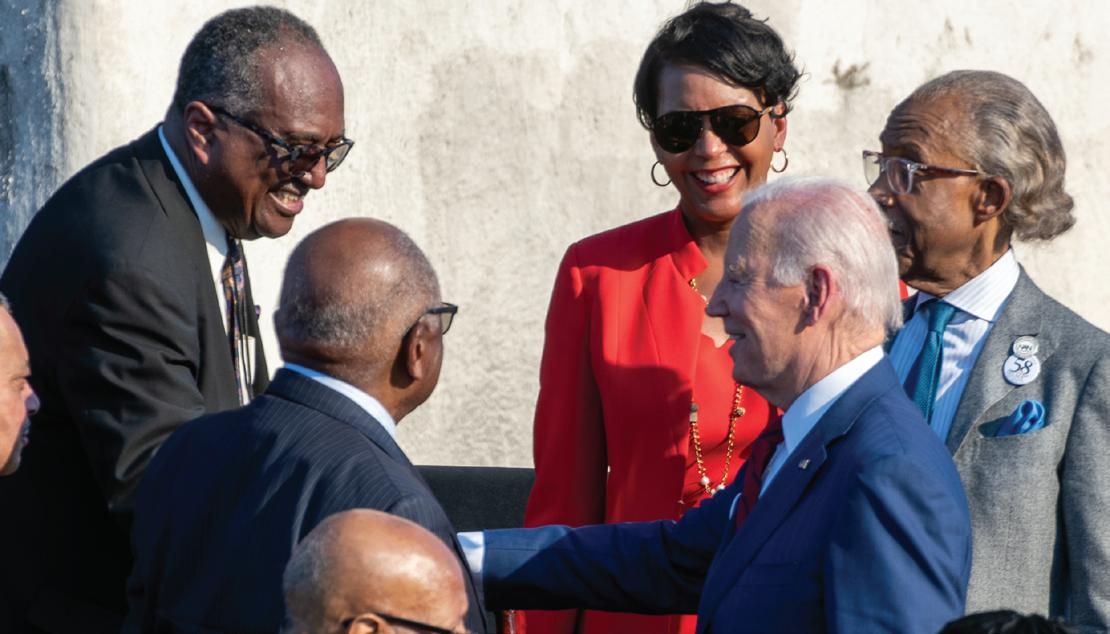
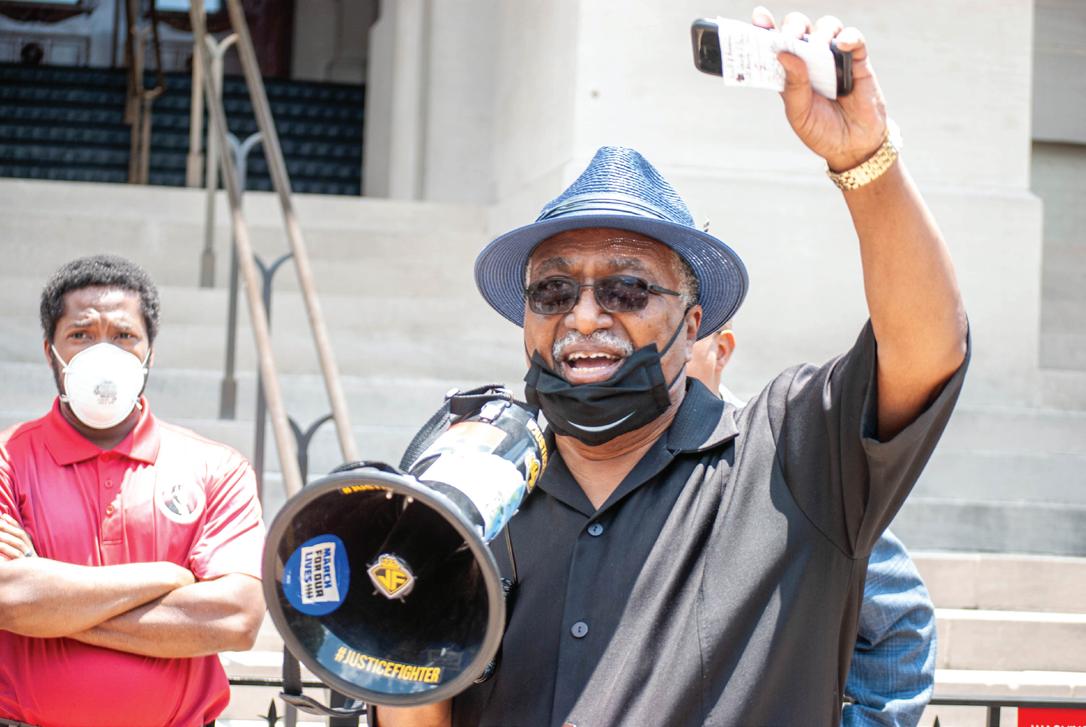
By: Jerry Thomas, President of Jerry Thomas Public Relations
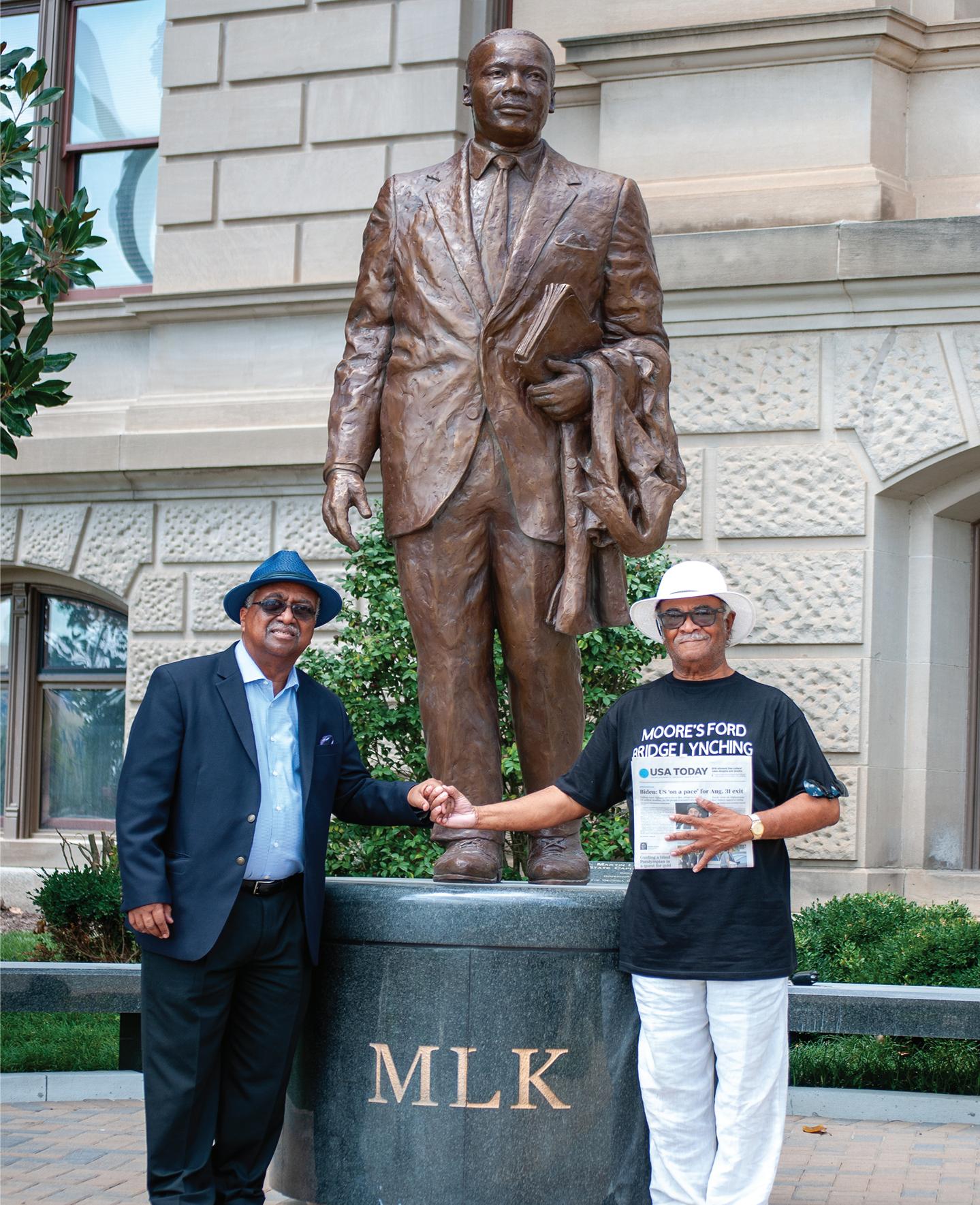
Tyrone Brooks is a legendary civil rights activist and former 35-year, influential Georgia House of Representatives member. He introduced the bill that led to a statue of Dr. Martin Luther King, Jr., co-founder and first president of the Southern Christian Leadership Conference (SCLC), erected on the grounds of the State Capitol in Atlanta. Brooks, a Warrington, GA native who calls Atlanta his home, joined the SCLC at 13. The SCLC’s Hosea Williams, a top King aide who led many field projects, recruited him. In 1967, at 21, he was hired by SCLC’s to do whatever was required. After Dr. King’s assassination on April 4, 1968,
Dr. Ralph Abernathy, who was also the organization's co-founder and succeeded Dr. King as president, would appoint Brooks to fill various roles within the organization, including special assistant to the president, national communications director, and national field director. In 2024, Brooks, who received four President Medals for Freedom and a Lifetime Achievement Award from the SCLC, remains an influential civil rights leader. He still leads the Moore’s Ford Movement, which annually commemorates the lynchings of four young African Americans by a white mob at Moore’s Ford Bridge in Monroe, GA in July 1946. Today, he reflects on the nearly two-decades long tenure of Dr. Charles Steele, Jr., a native of Tuscaloosa, AL. After this conference, Dr. Steele will transition from the president and CEO of the SCLC to a social justice mission close to his heart, developing housing for America’s poorest citizens.
How long have you known Dr. Steele?
Tyrone Brooks: “We have known each other for a long time. I knew of him from a distance, dating back to the 70s. After Dr. King’s assassination, there was a mass exodus. All the superstars left. I was recruited to be on the Abernathy team. Many of the SCLC leaders were from Alabama or had some strong connections to Alabama. Fast forward, Charles Steele was the new face of the SCLC in Alabama, the state president. He had been an elected official in Tuscaloosa and was now a powerful Alabama state senator, and he had supported me for a long time. They would say, “Charles Steele likes you, man. He is watching you from a distance. He is reading about you in Jet Magazine.”
What was the inner political climate of the SCLC when Dr. Steele was being recruited as president?
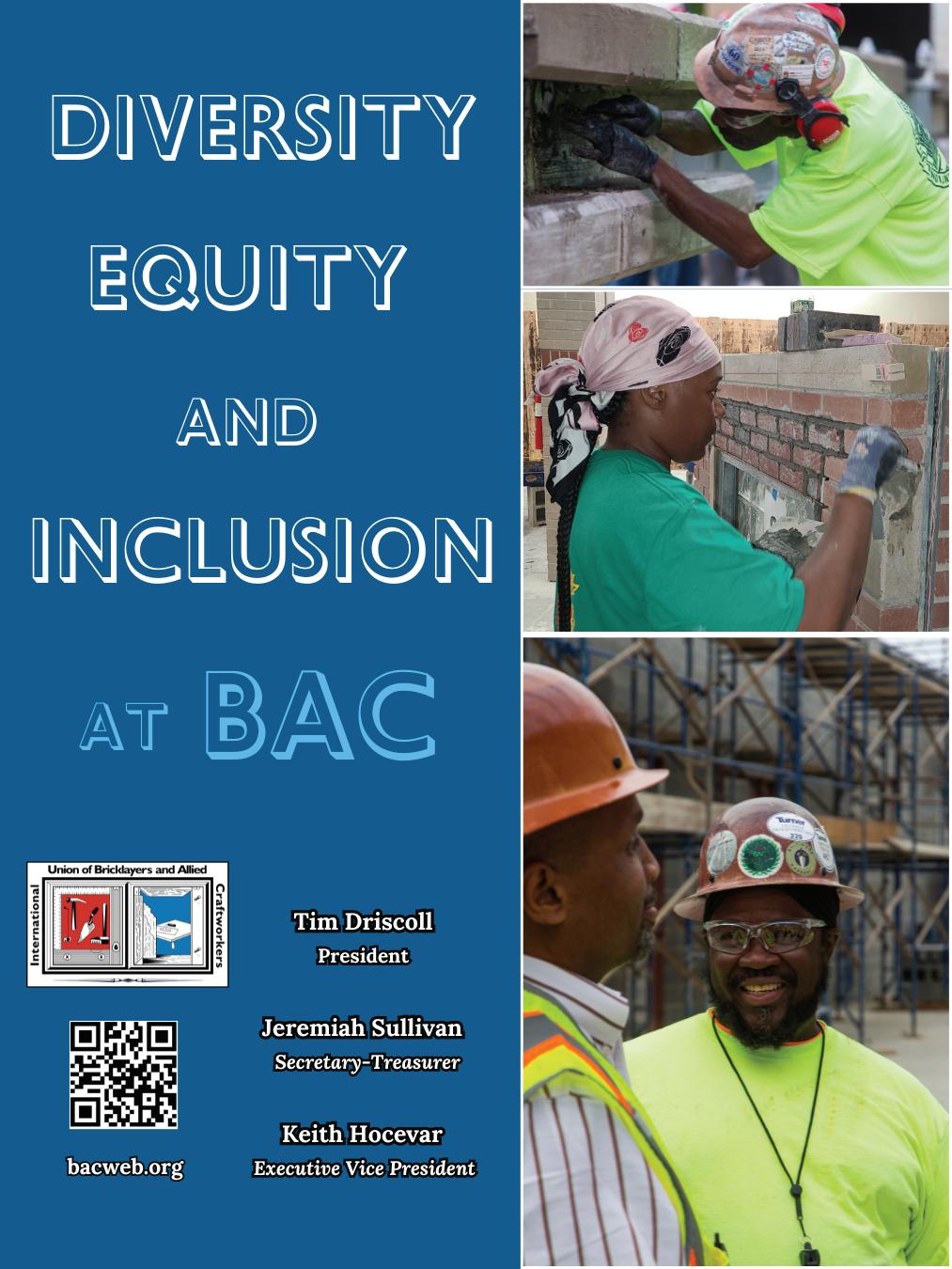
Tyrone Brooks: “We had so many spies inside and outside the organization. We were saving Martin Luther King III, who was having a tough time because we had some board members I called FBI agents. I used to say all the time. We have these folks up in the SCLC who don’t have the SCLC at heart. They wanted to destroy the SCLC from within, and they were giving Martin Luther King III hell.
The SCLC leaders—King, Abernathy, Lowery, Martin King III, and others—were under so much pressure because the government was intent on destroying the organization from the beginning. Dr. Claude Young, the chair of the SCLC's board, was really giving Martin King III holy hell. He wanted to run him out.
Charles Steele brought all of us to Montgomery in 2001 for a convention, and he paid for everything. He had all our rooms paid for, lunches, and everything else you could imagine. He raised the money to do it. I had two state troopers with me. We got to Montgomery and walked into the hotel's front door to check-in, and the lady in charge at the registration desk said, ‘Oh! Representative Brooks, these rooms are paid for. We do not need anything from you.’ I said what? I have these troopers, and she said they are paid for too. I said they can pay for their rooms; they have their own per diems. Rev. James Orange said Tyrone, I told you when you come to Alabama, Charles Steele has already taken care of everything. Your money is no good over here. We saved Martin Luther King III, but eyes began to focus on Charles Steele.”
What led to Dr. Steele being named president?
Tyrone Brooks: “Charles Steele was doing the work in Alabama. He had been in the trenches in Alabama. He knew the SCLC. He was the president of the SCLC’s state chapter in Alabama. He was a businessman, a former member of the Tuscaloosa City Council, and a powerful state senator. He was perfect. He was the one.
He watched us closely while working with Rev. John Nettles and Rev. N. Q. Reynolds, so he bought into the movement. He thought it was time for him to contribute as the state president. One day, I drove James Owens over to a meeting Charles was convening in Alabama, and Owens and I told him we thought he was the perfect one to come to the SCLC after Martin King III. You might as well do it. You need to think about it and become president.
Charles listened to me and Rev. Orange. I guess he talked it over with his family and decided to come to Atlanta. Finally, he decided to give up his senate seat and take it on.”
What was the state of the SCLC when Dr. Charles Steele was elected president in 2004?
Tyrone Brooks: “If Charles Steele had not come at the time that he did, I don’t believe we would have a Southern Christian Leadership Conference today. When he came to Atlanta, the SCLC was broken. We had no money, and the building was crumbling. It was just hanging on. It was on life support, as we say, but Charles came in and sacrificed. He slept in his car. He drove back and forth to Tuscaloosa.
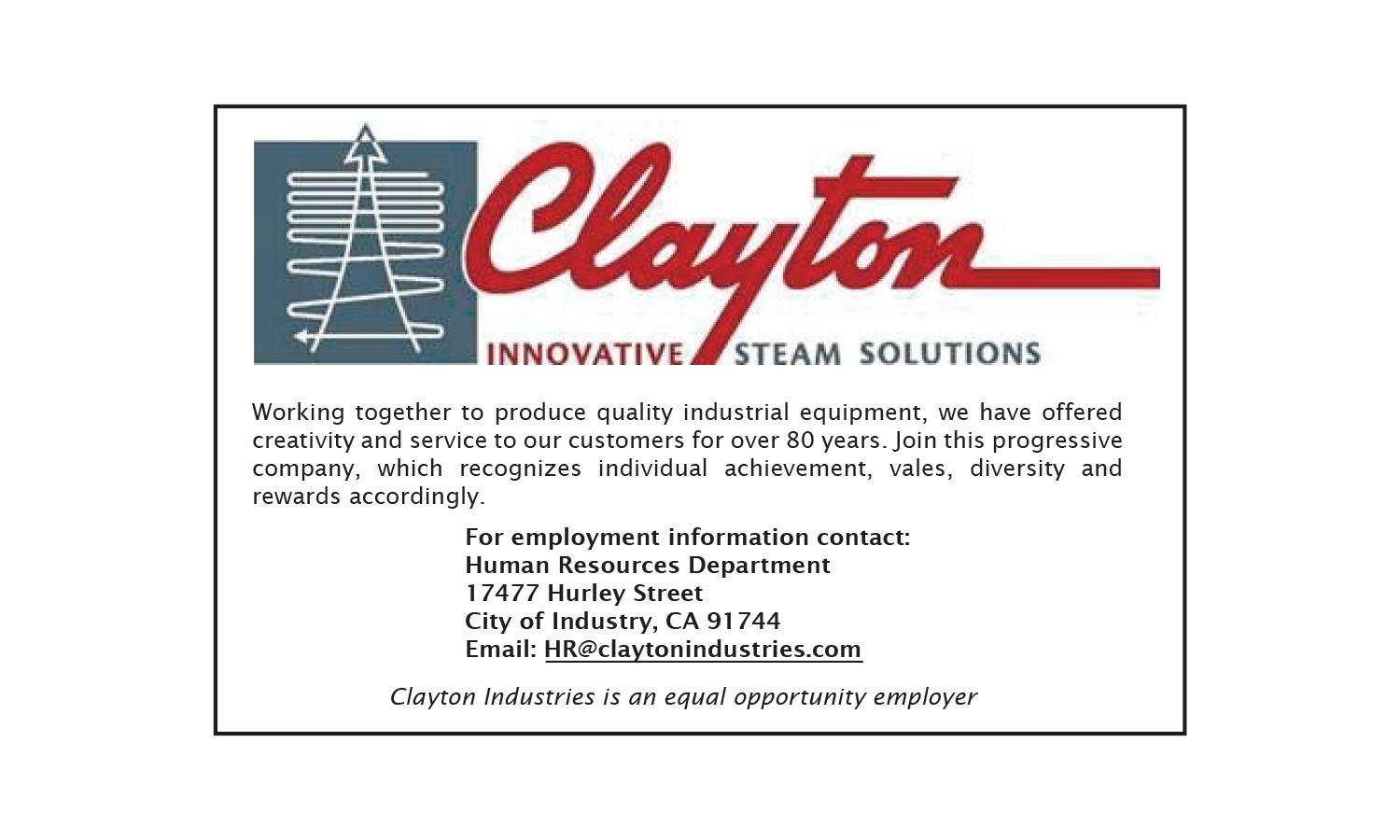
He used his money, and he found a way. He made a way out of no way to create another movement within the organization and built a team that helped him grow. He served one stint, left, and came back. He was a blessing in disguise.
What is your assessment of Dr. Steele’s nearly two decades-long tenure at the SCLC?
Tyrone Brooks: “Charles Steele must be commended because he has done something Martin Luther King, Jr. has not done for us, Ralph David Abernathy has not done for us, Joe Lowery has not done for us, and Martin King III has not done for us. He bought a new spanking building on Auburn Avenue near the original headquarters. He moved us from Auburn Avenue to Edgewood and found resources to move us to West Peachtree Street. He had all these resources, and finally, he said I found these resources to build us a building on Auburn Avenue. I said what? I found the resources. With his contacts, he is a genius at raising capital in the business community. Finally, we see this contract with the Hermann Russell Company and an announcement in the papers.
SCLC National Magazine/ Convention 2024 Issue
I was there when former President Bill Clinton dedicated the building. President Clinton cut the ribbon, and I said to the media, who asked me what you do think about Charles Steele. I said he is the perfect one to come into SCLC after King, Abernathy, Lowery, Martin King III, and others. He has been in the trenches. He knows the SCLC. This man is perfect. He is the one.”
He was also instrumental in erecting the Dr. Martin Luther King, Jr. statue on the grounds of the Georgia State Capitol. I told Dr. Steele that we must have this King statue at the capitol. He also continued the global presence of the SCLC. The SCLC is known worldwide, and he has continued that legacy by meeting with leaders like Mikhail Gorbachev and others in the Middle East and South America. I am not just saying this because I have his back. I am saying this because it is the truth.”
How was Dr. Steele instrumental in the erection of Dr. King’s statue on the grounds of the State Capitol?
Tyrone Brooks: When I go by the State Capitol and look at the statue of Dr. Martin Luther King, Jr., I say that it is Charles Steele there, even though I introduced the legislation on Dec. 11, 2013. But we needed the SCLC team and the civil rights leaders to bring the heat on the outside while I carried the legislation on the inside. Charles was brought into it, and he said OKAY. He bought in Joe Lowery; he got her SCLC family and held a news conference at the Capitol with all the civil rights heavyweights. Rita Samuels kept saying, ‘Tyrone, that will never happen. They will never put Martin Luther King, Jr’s statue on the capitol grounds; they hate him. I said we have to give it a shot.” So, Charles Steele organized the movement part. I was on the inside moving the legislation, and low and behold, it got traction and passed, and we were all there when the bill was signed into law in the Rotunda in May 2014. It was not just me. Charles Steele brought together the civil rights community, and I was inside the gold dome. We had a governor, a lieutenant governor, a house speaker, Stacy Abrams, minority leader for Democratic Caucus, Larry O’Neal, majority leaders of the Republicans, Joe Wilkerson, chair of the ethics committee in the House, and some dear friends.”
What is next for the SCLC?

He has been talking about this for a year or so now, and I have been trying to discourage him from doing this, but he wants to do it, and his wife, Cathelean, wants him to do it. He has a calling to move in another direction in the movement.
Is Dr. Steele the last of the traditional civil rights leaders? He very well could be.
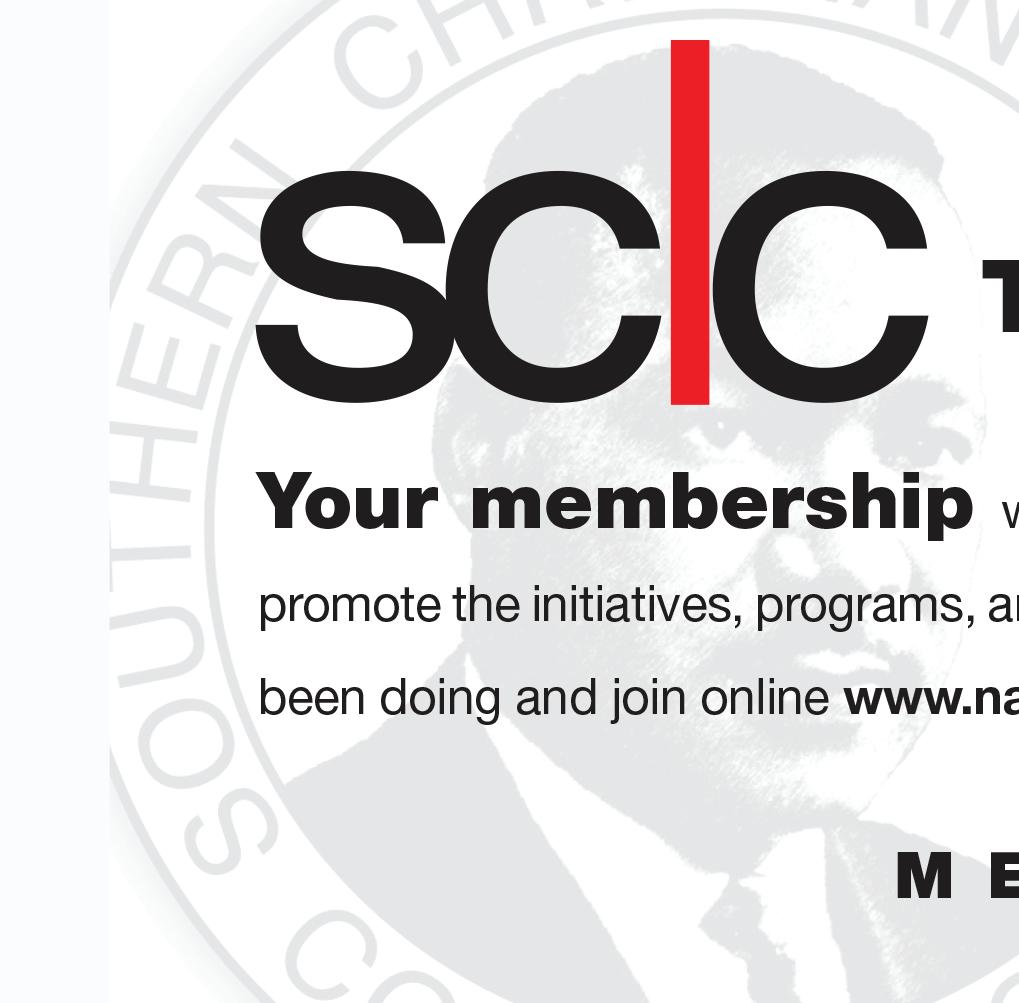
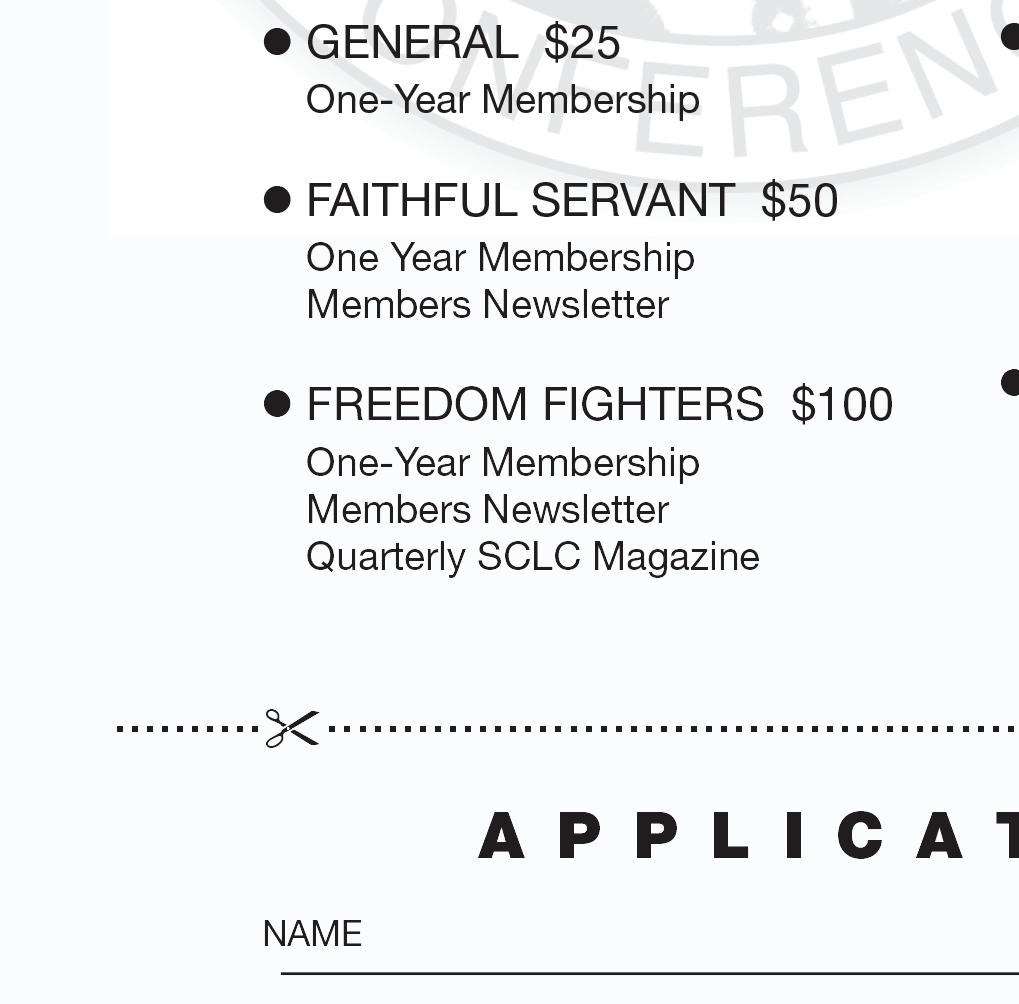
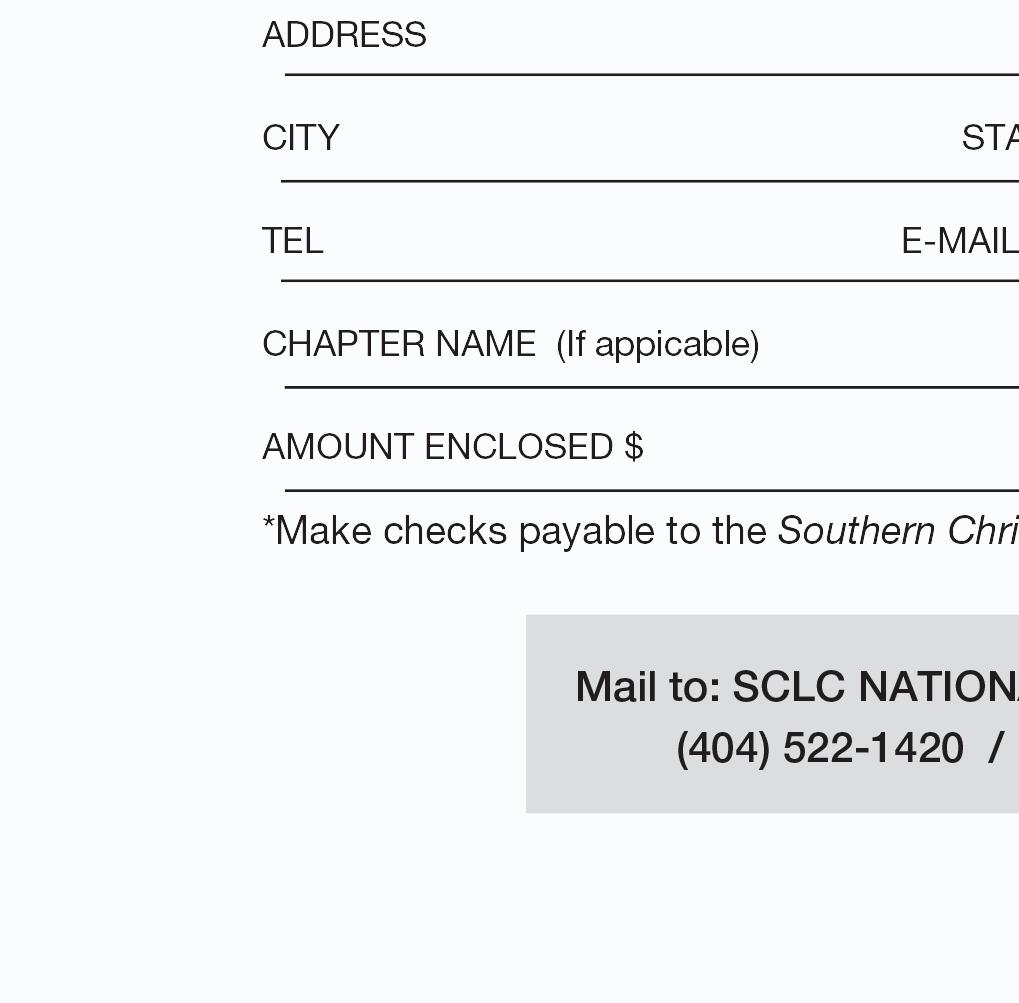
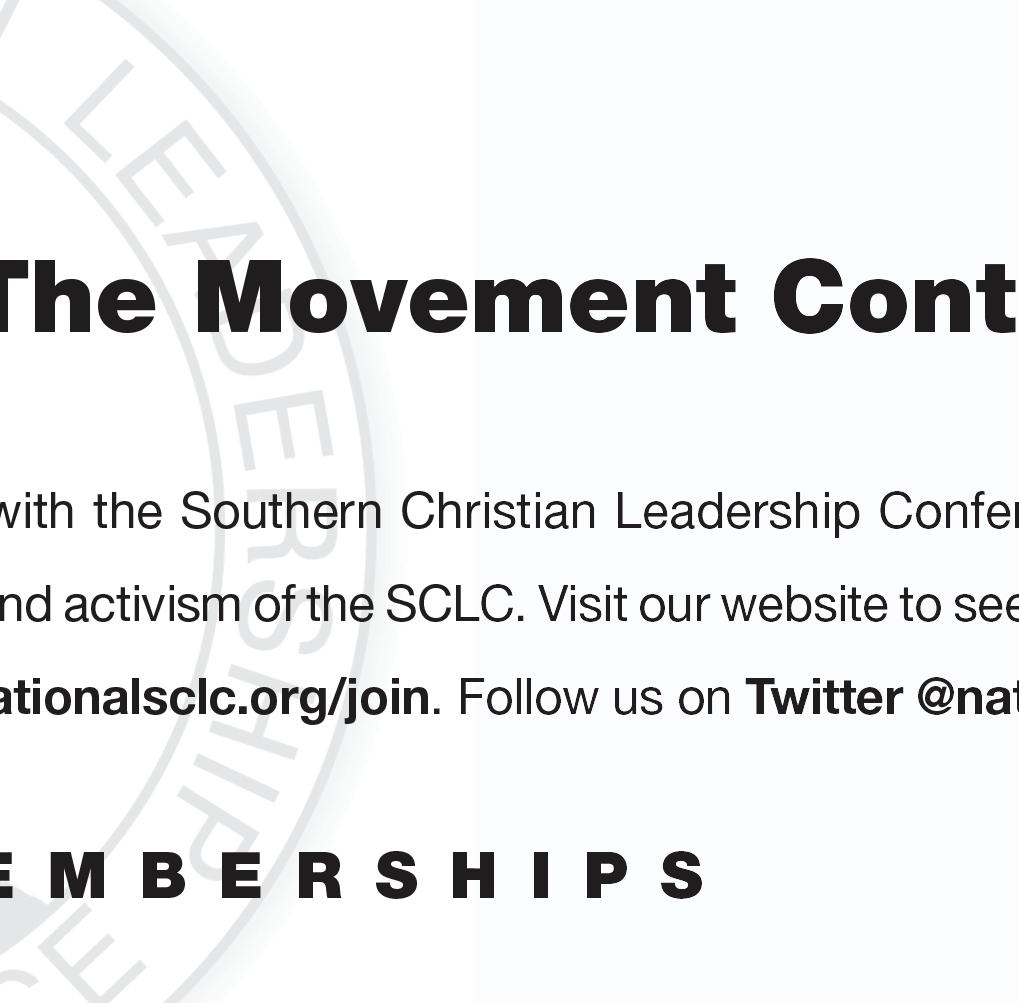
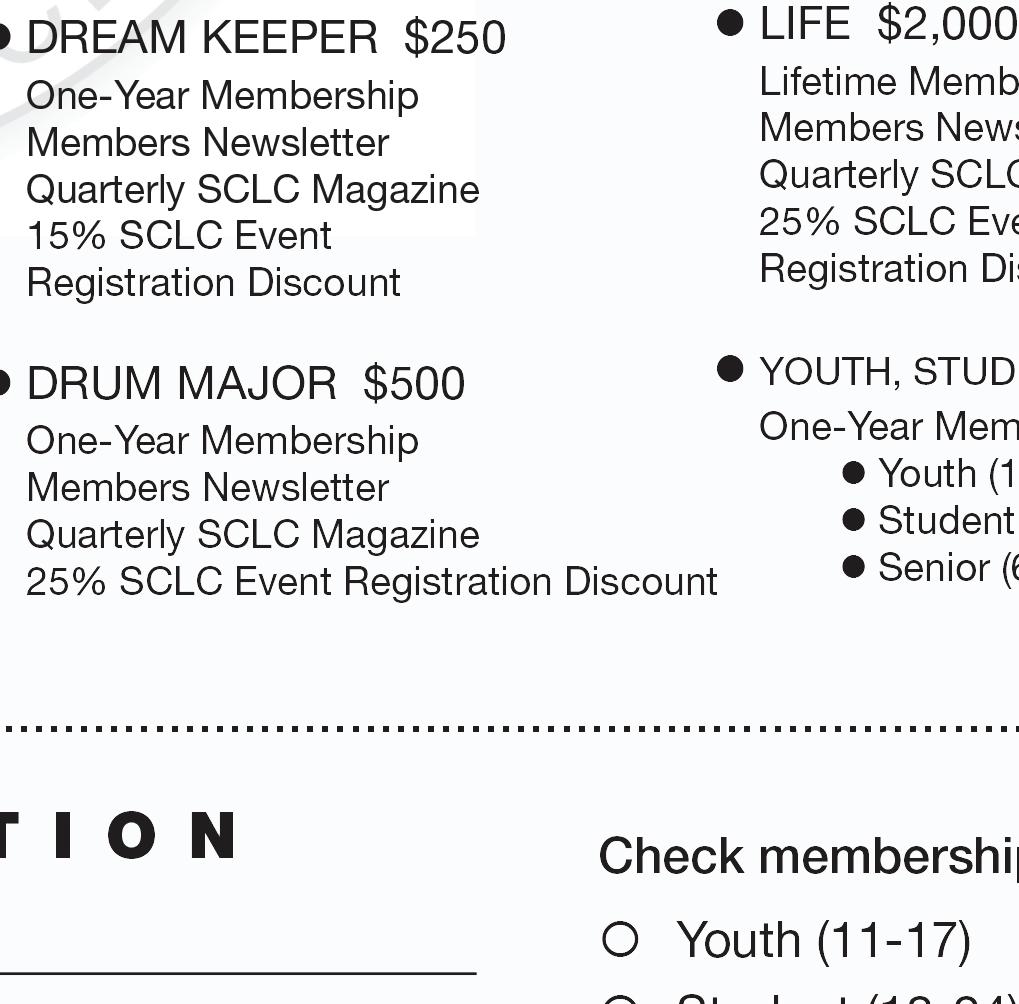
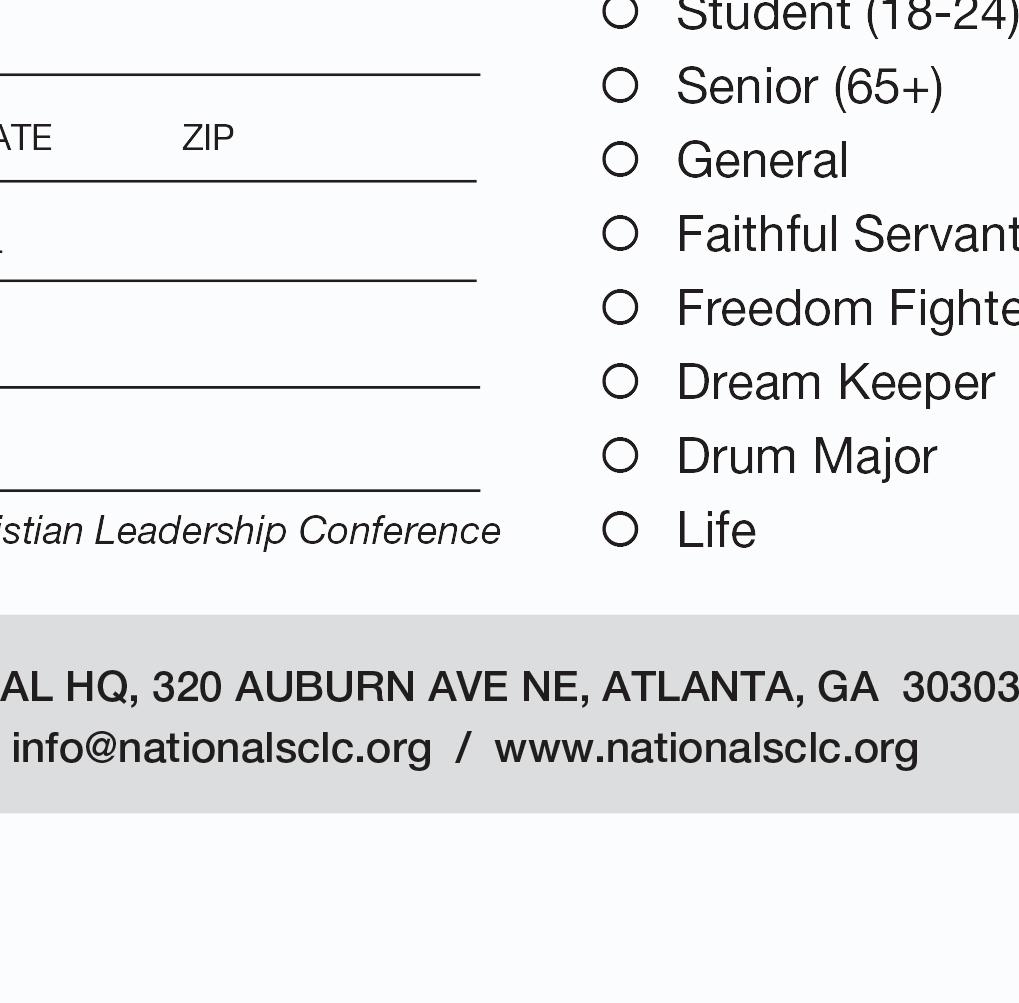




Success isn’t rooted in sameness. Approaching things from different perspectives and working together for positive change are how progress is made. That’s true in business and in life. We salute all those who are striving to make the world a better, more inclusive place.

FedEx is a proud supporter of the 2024 Southern Christian Leadership Conference















































